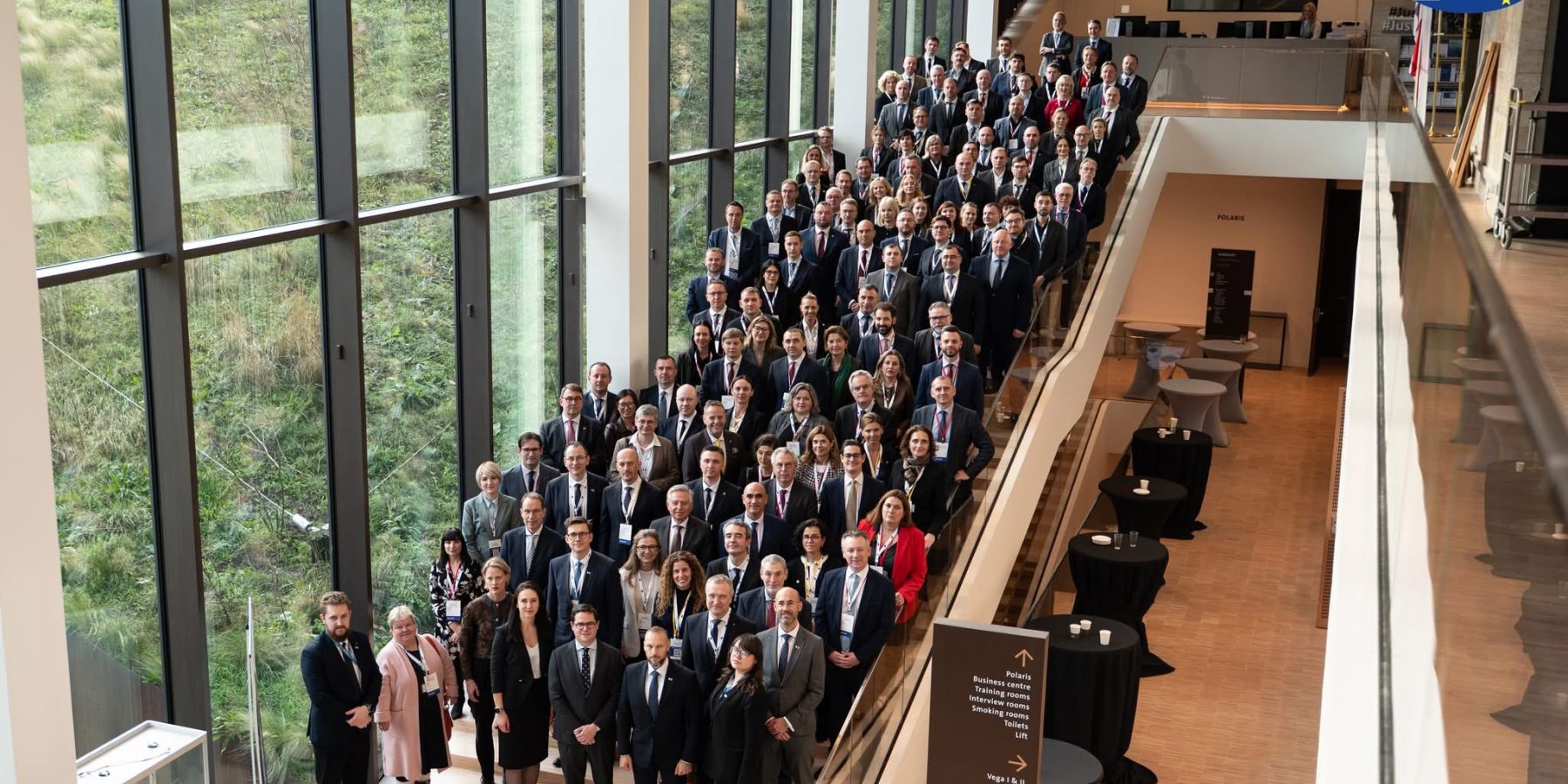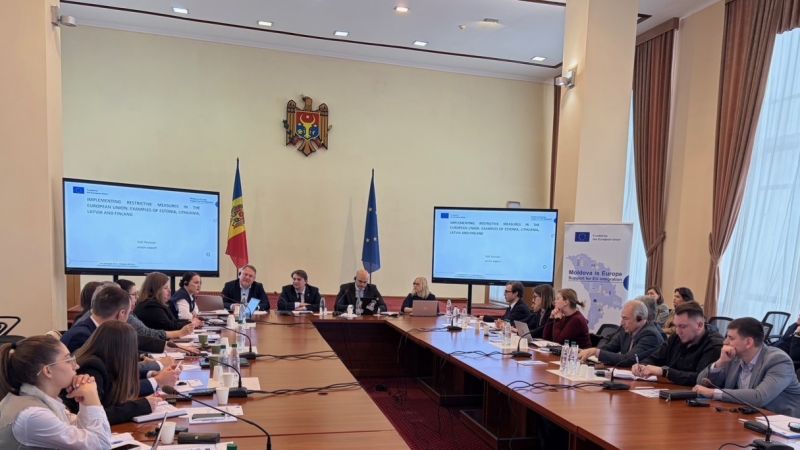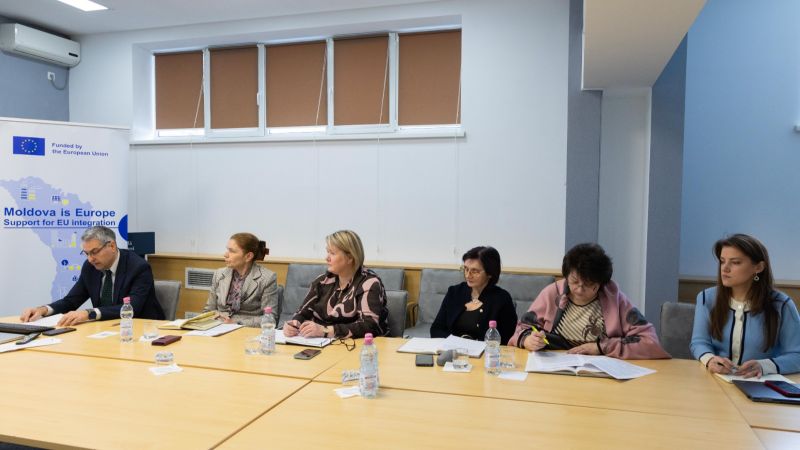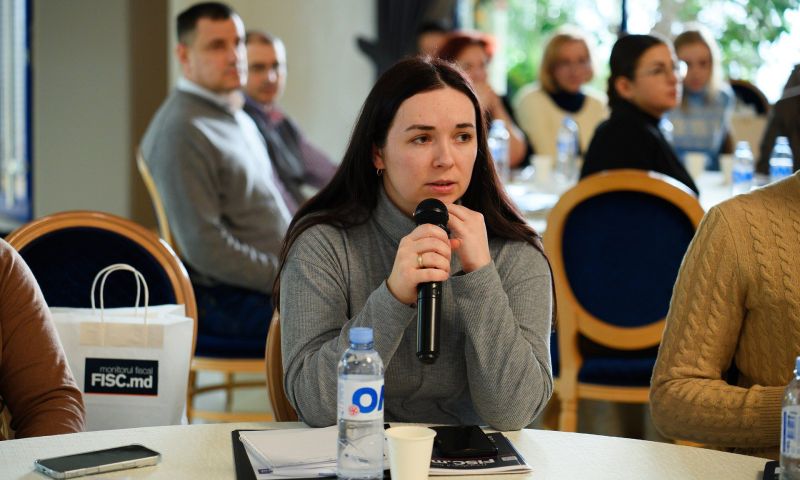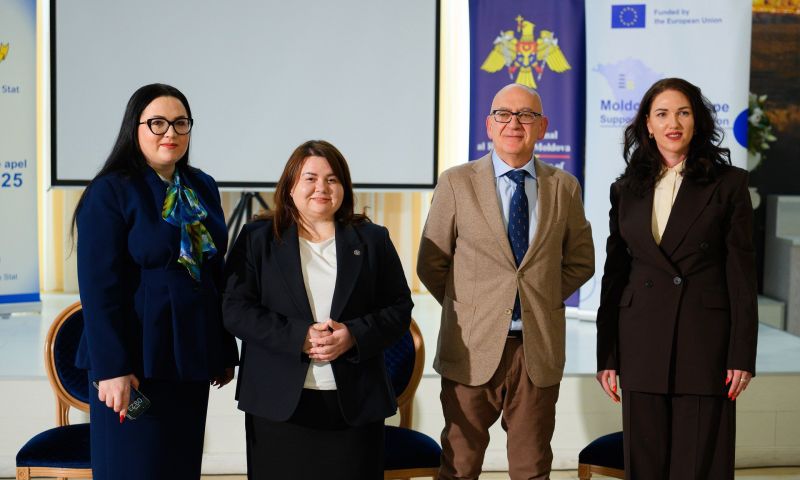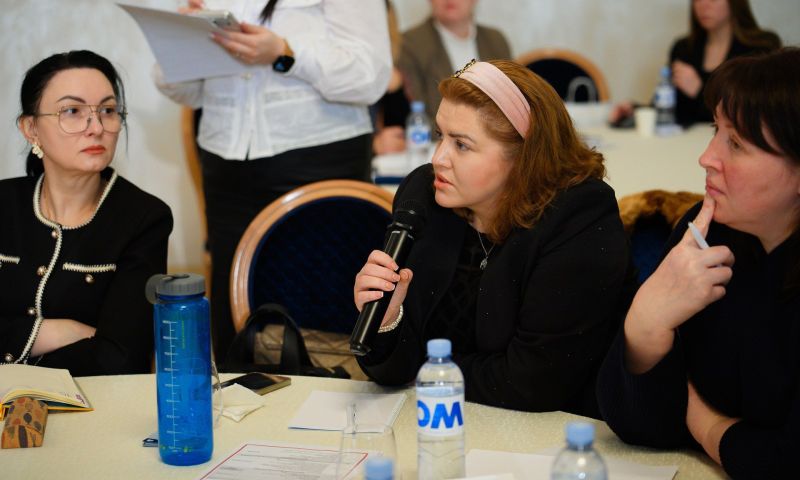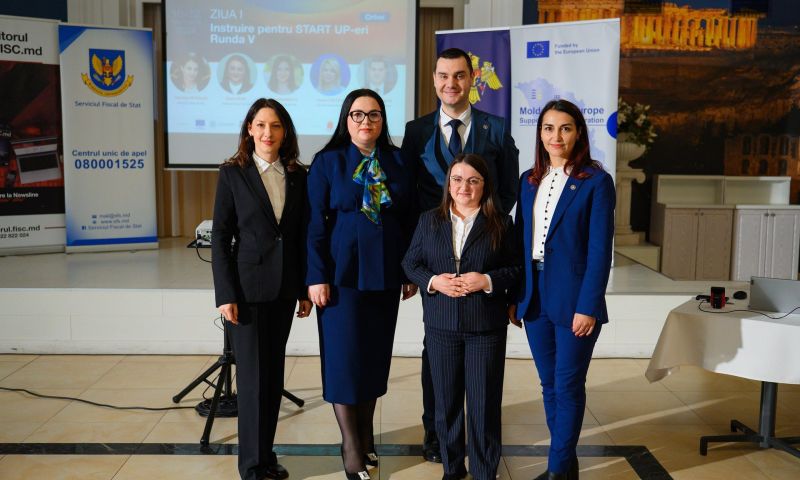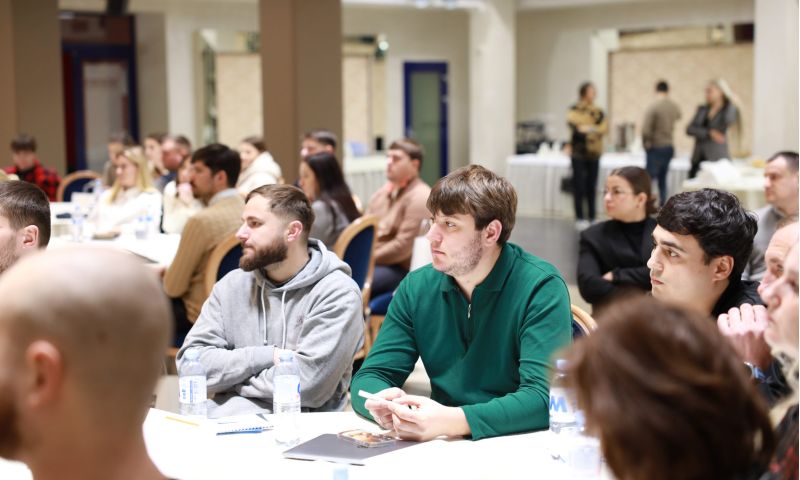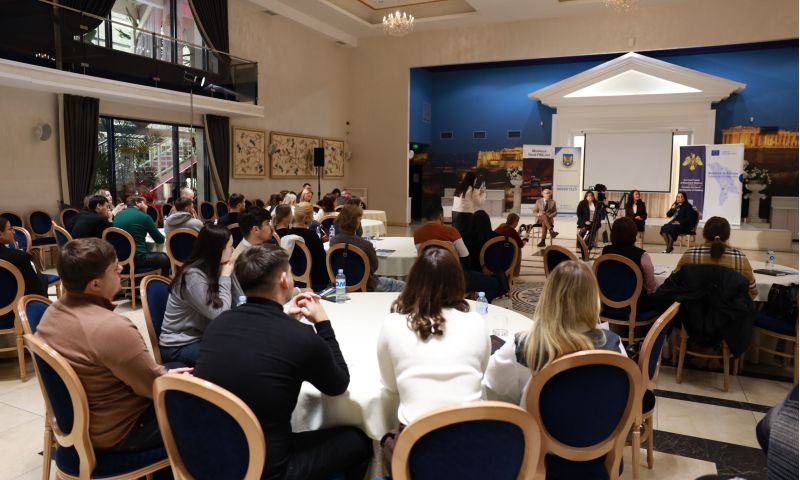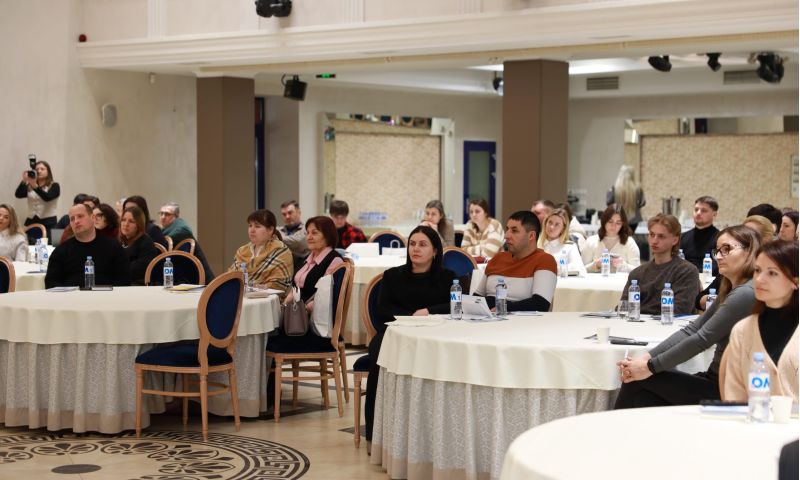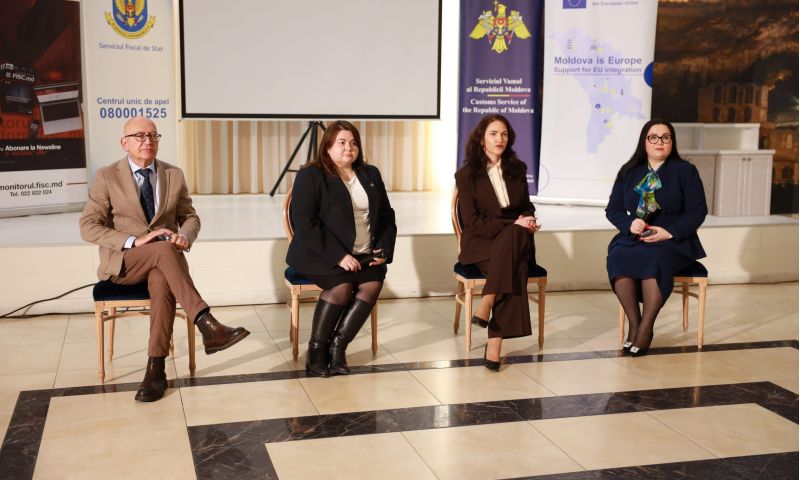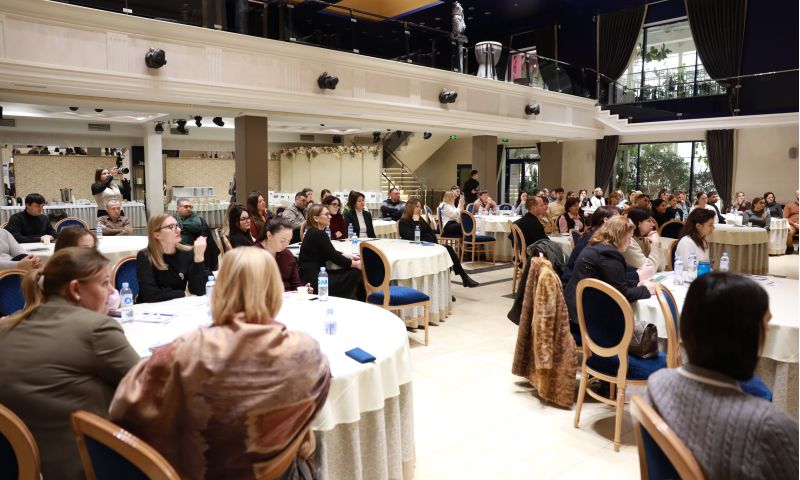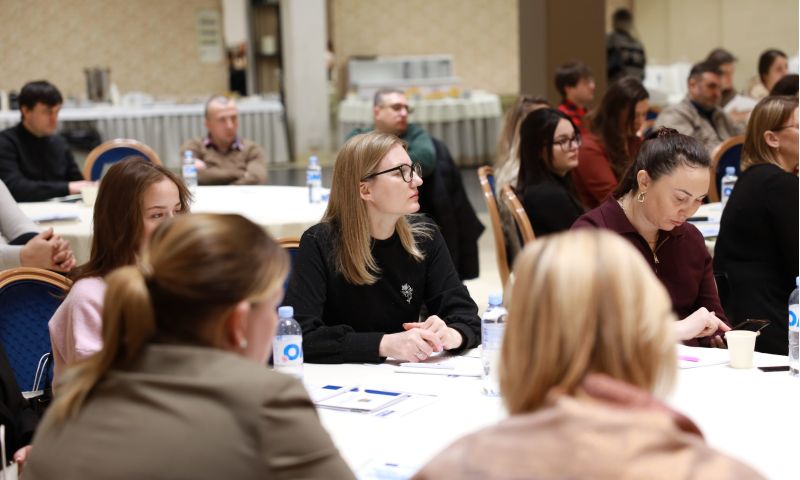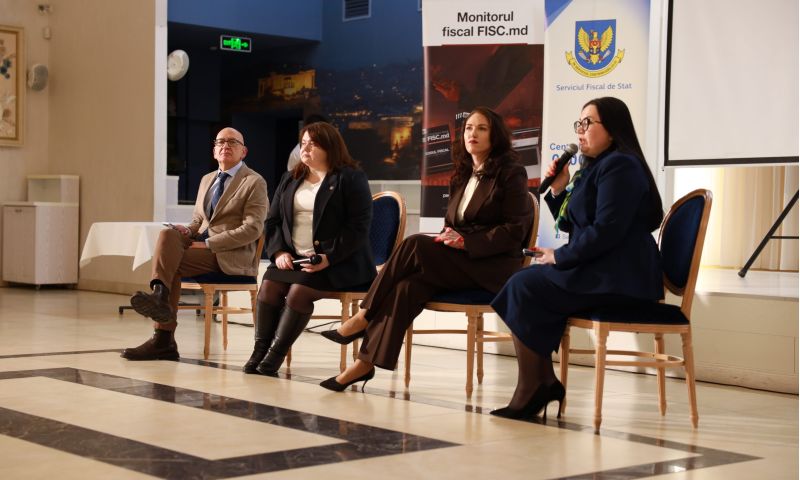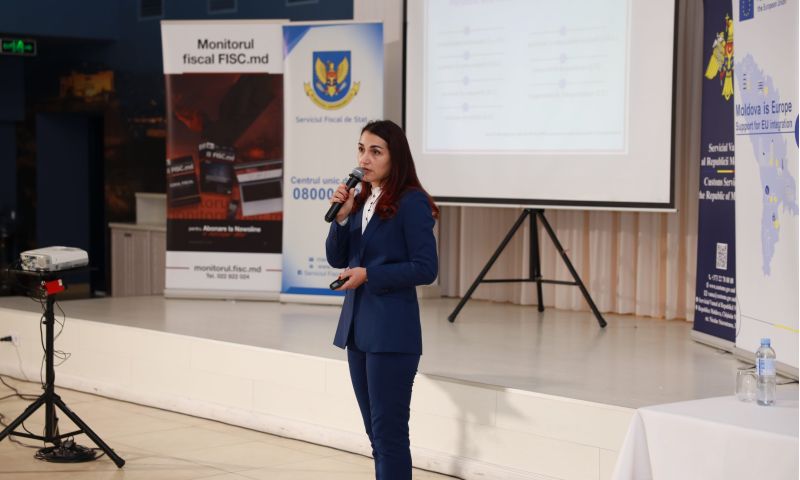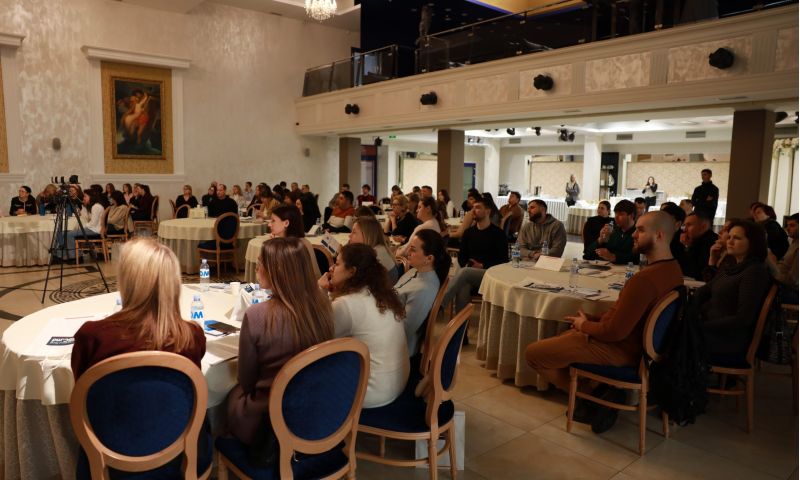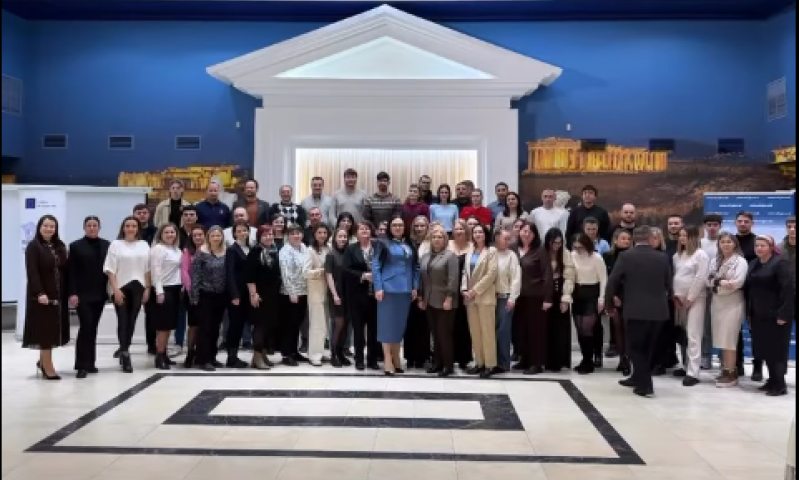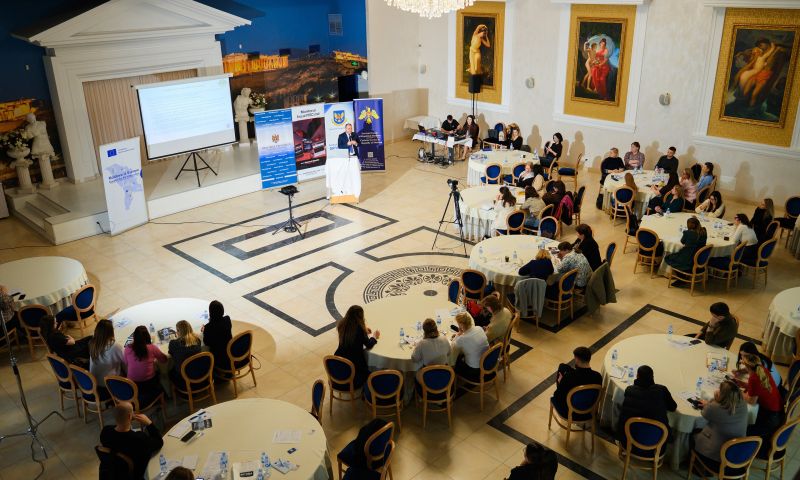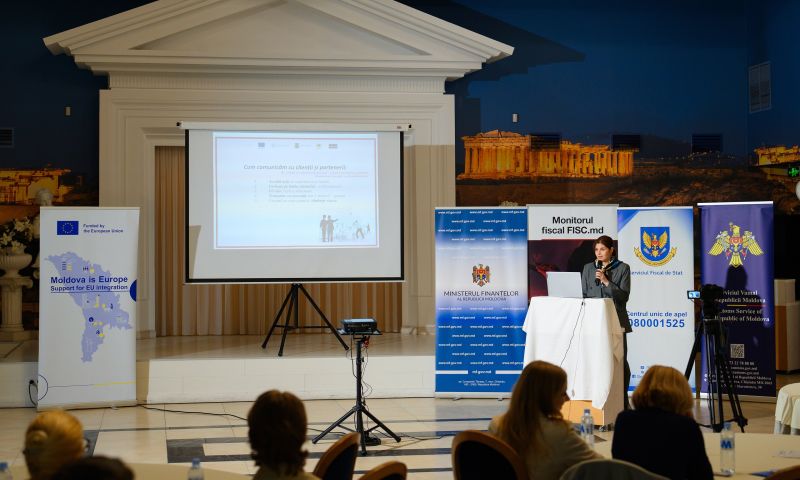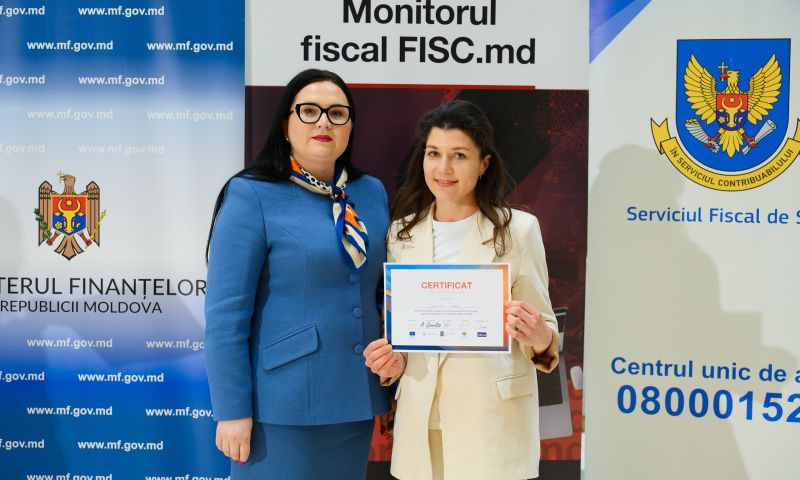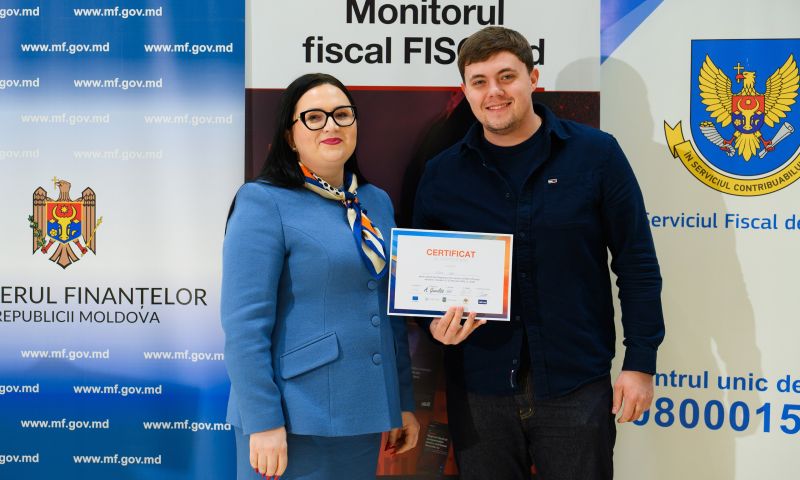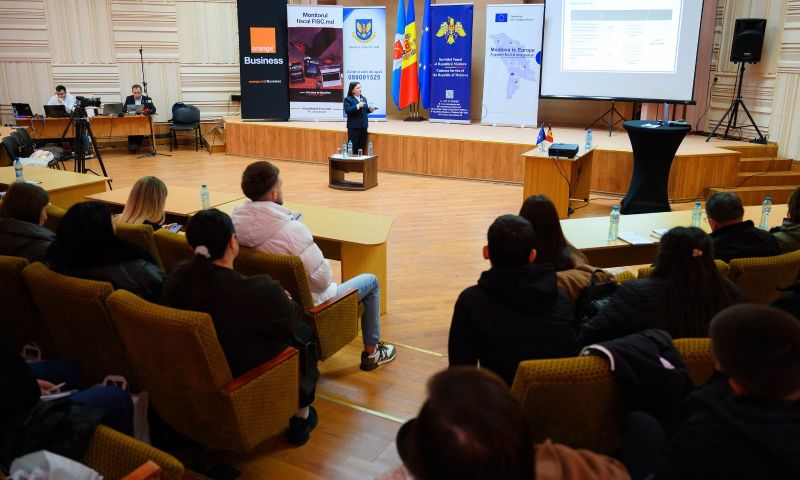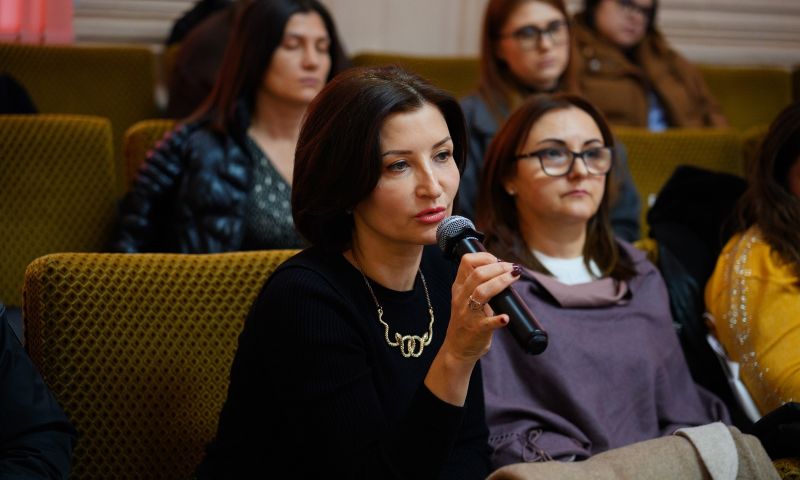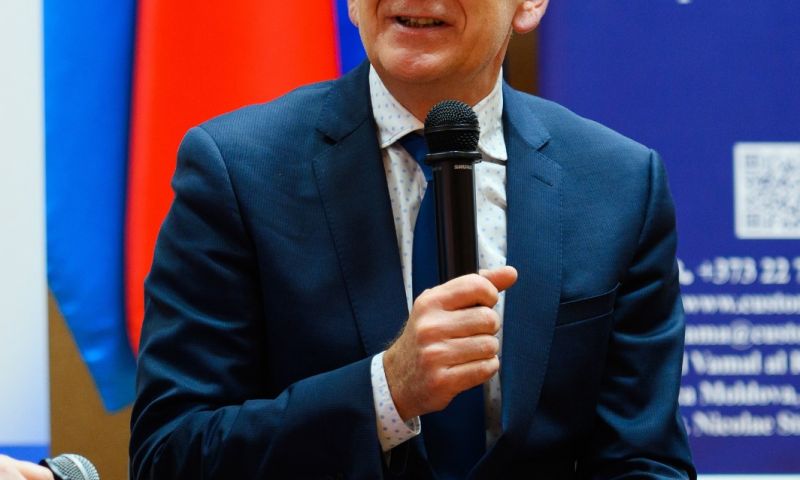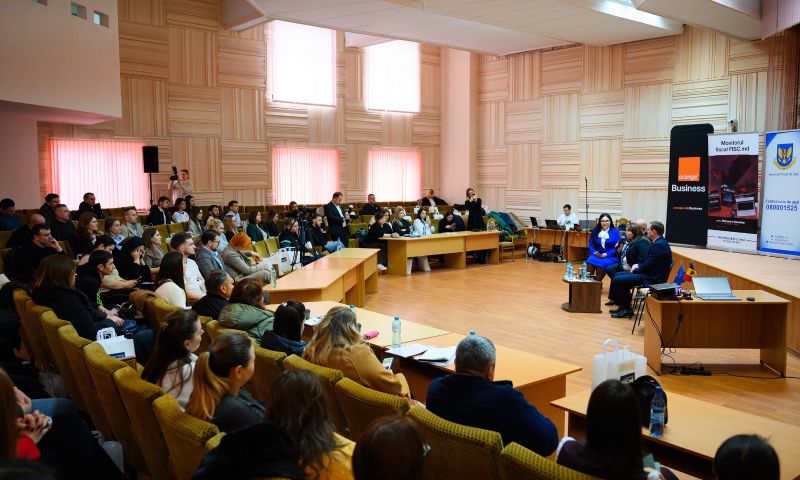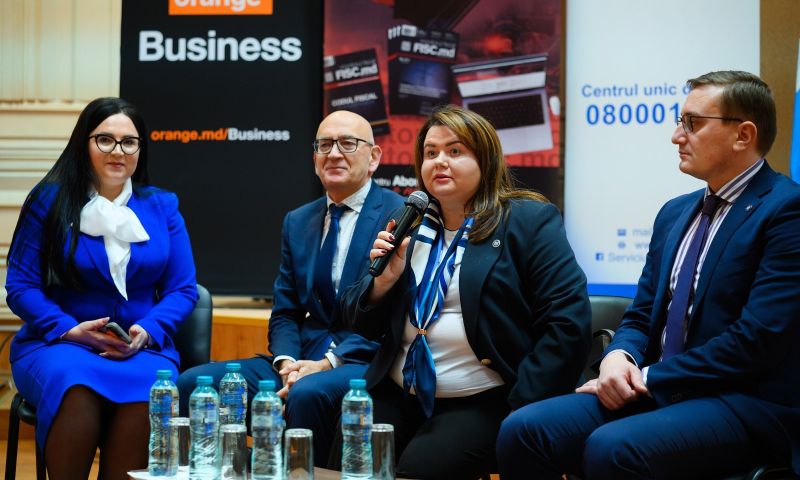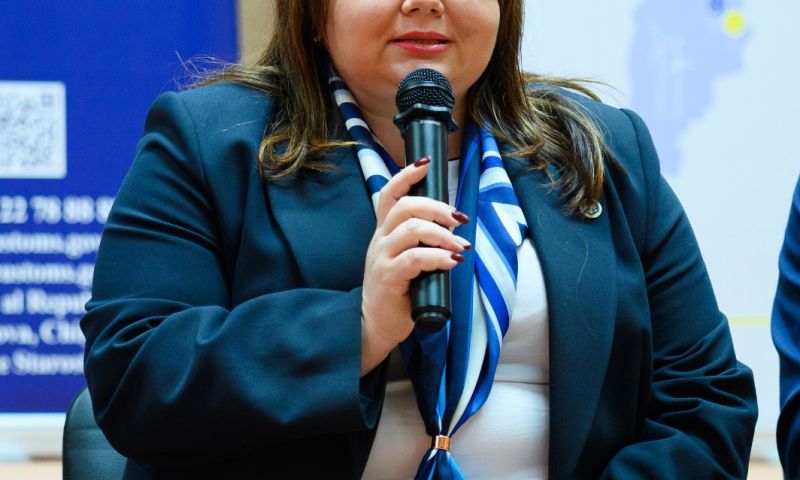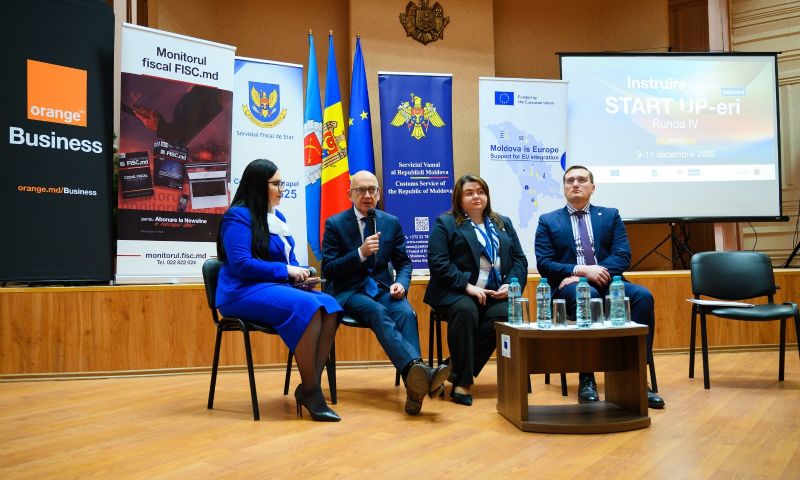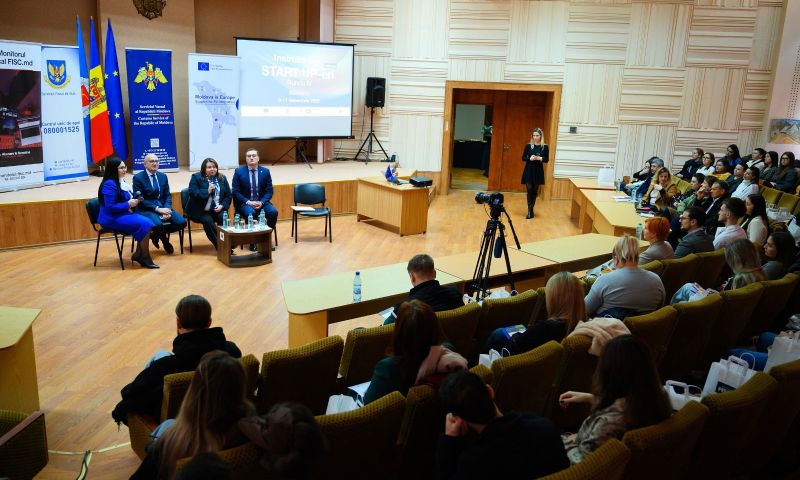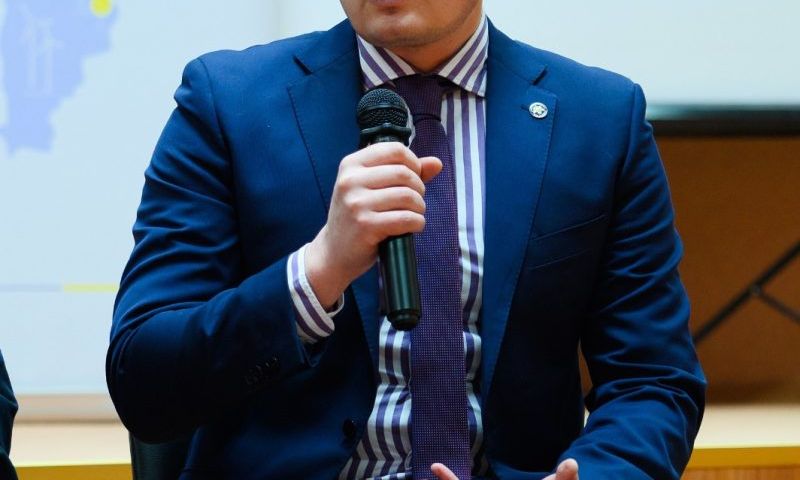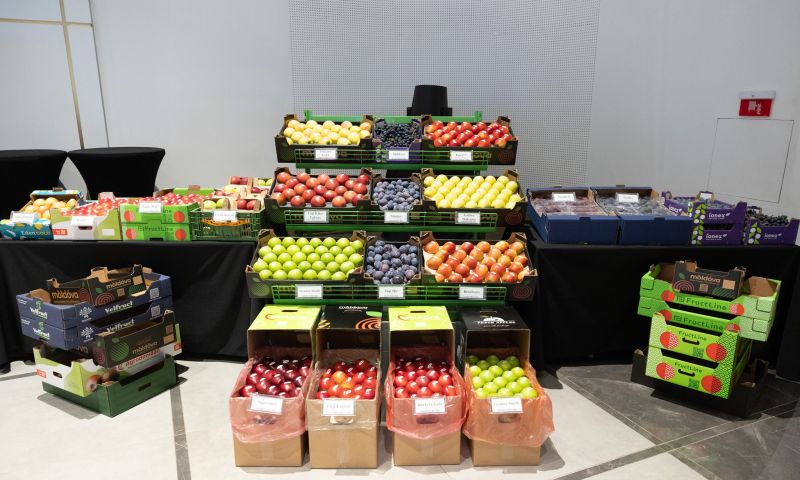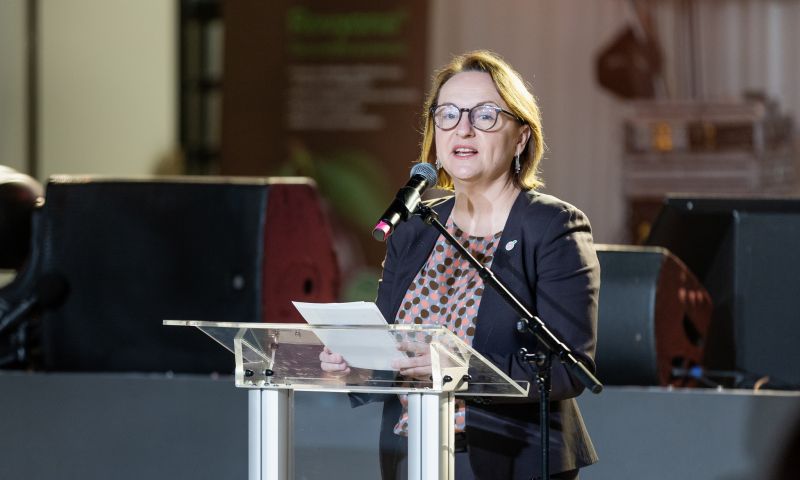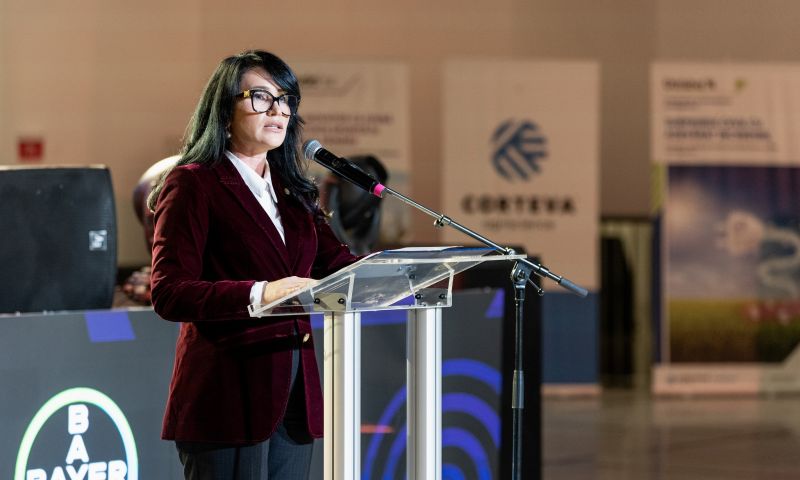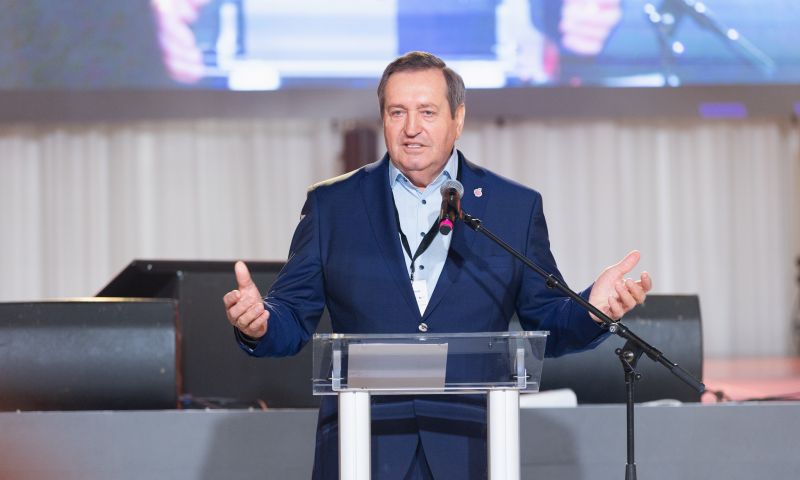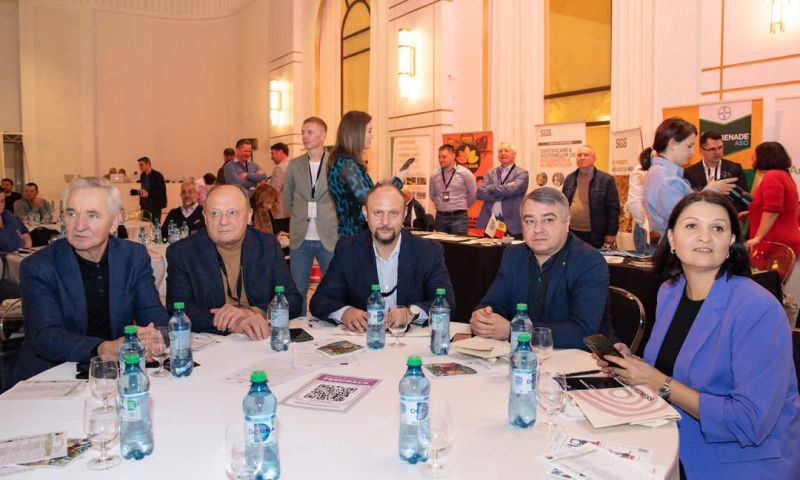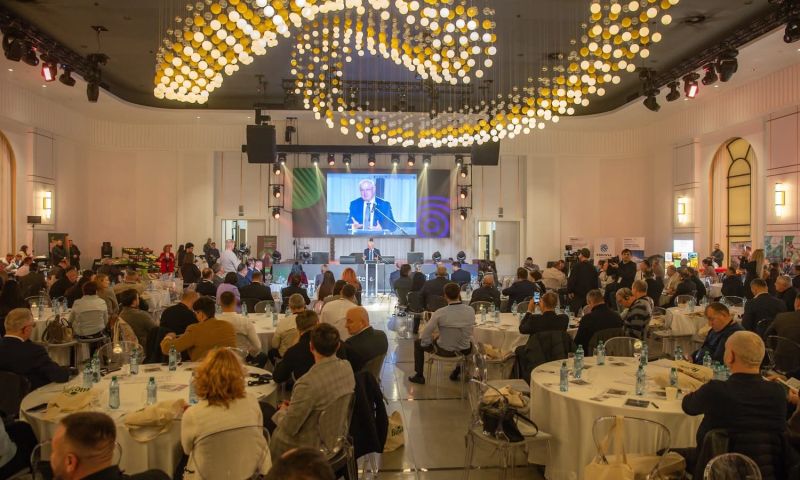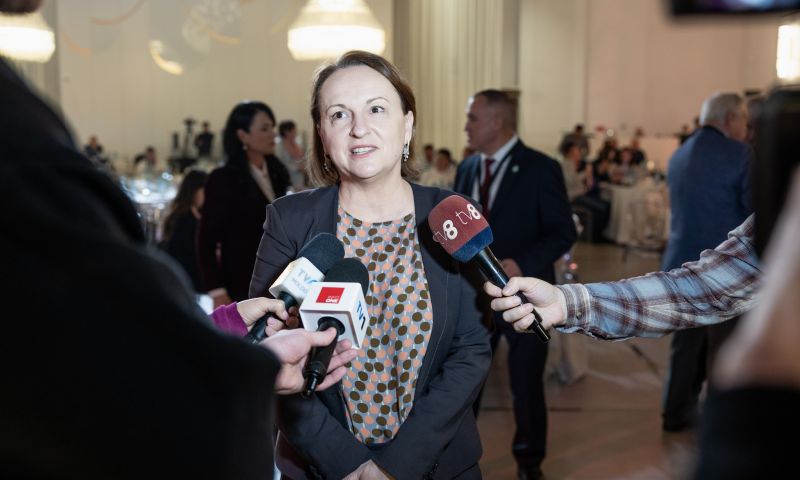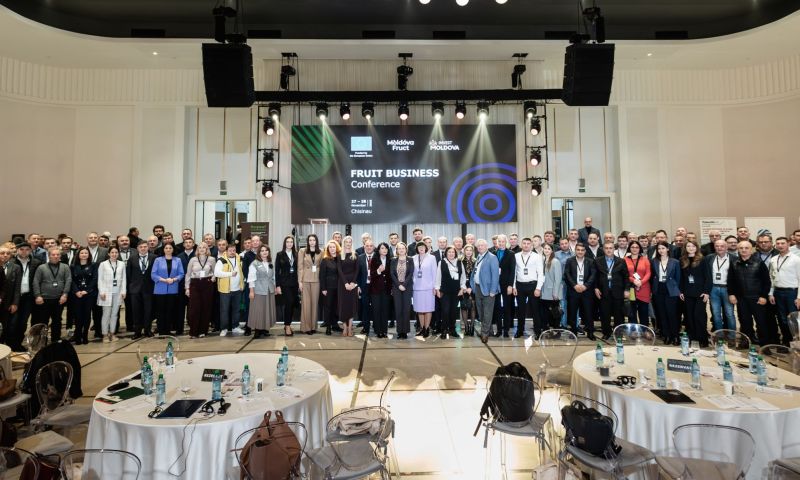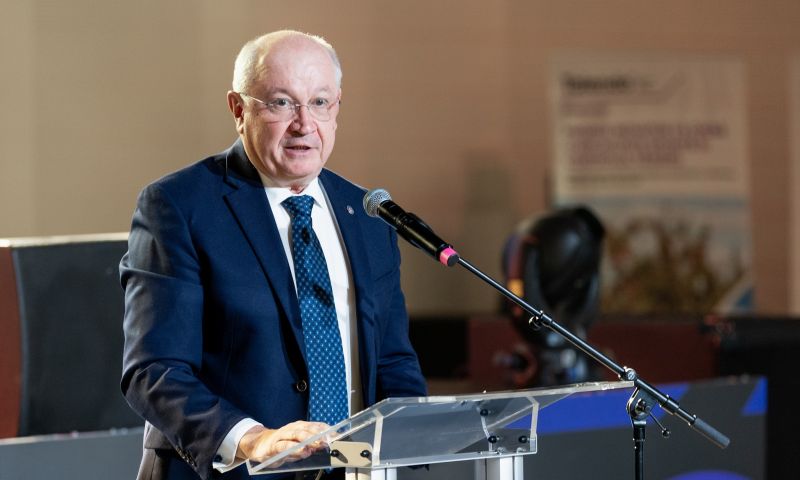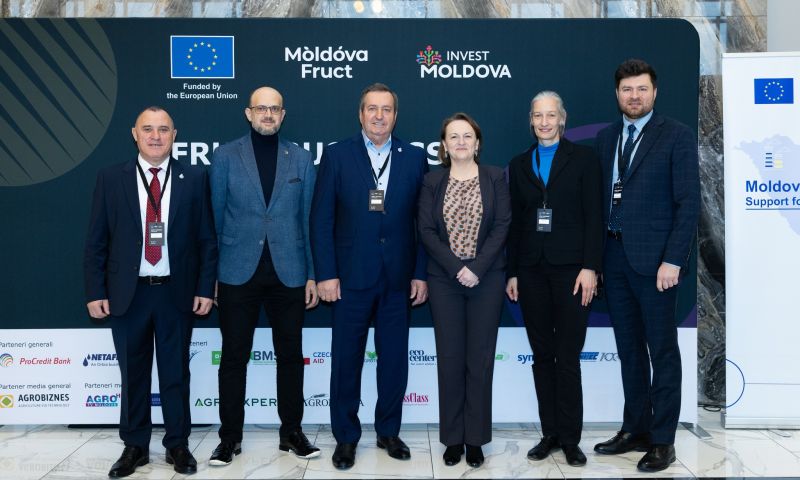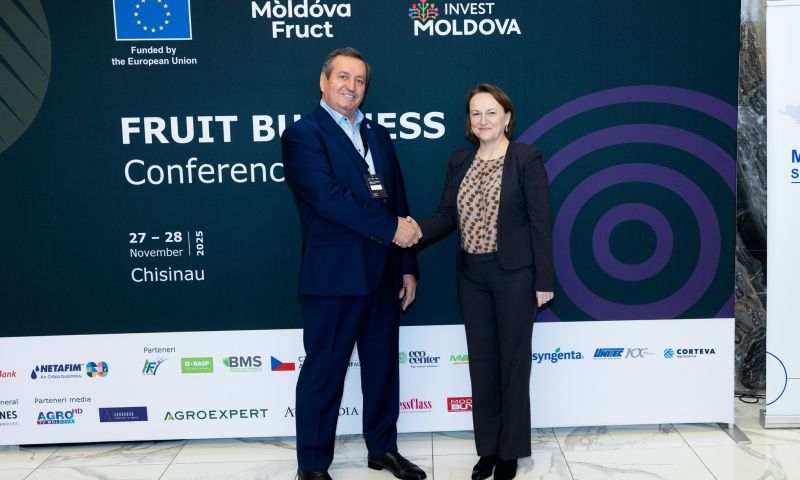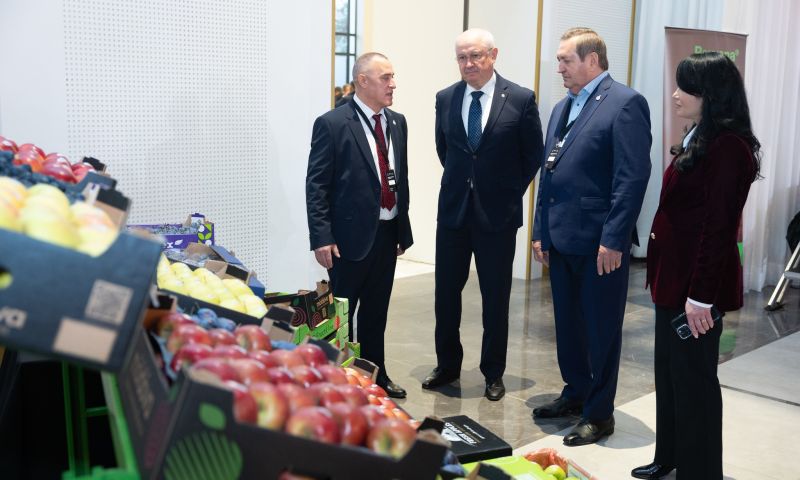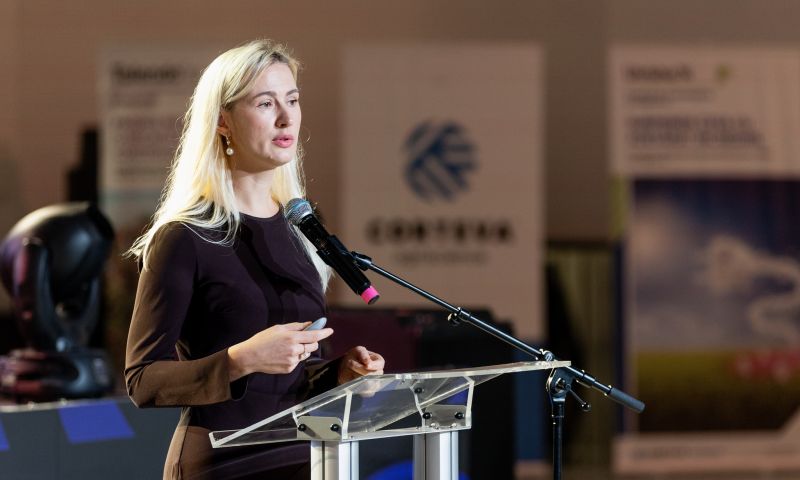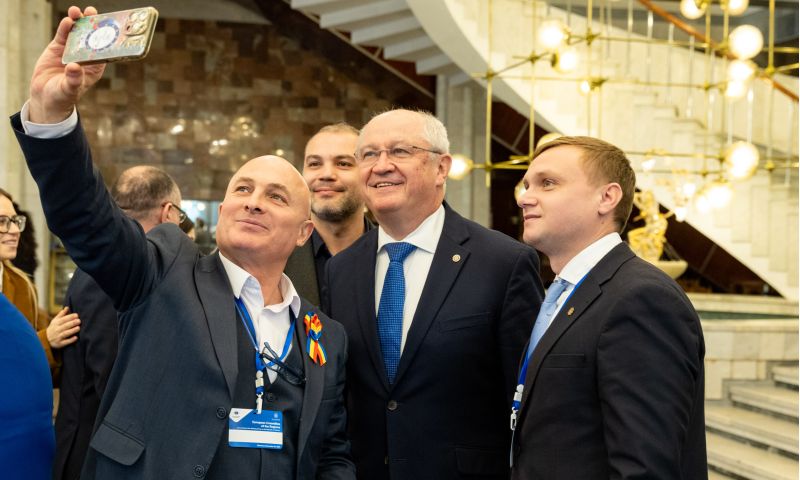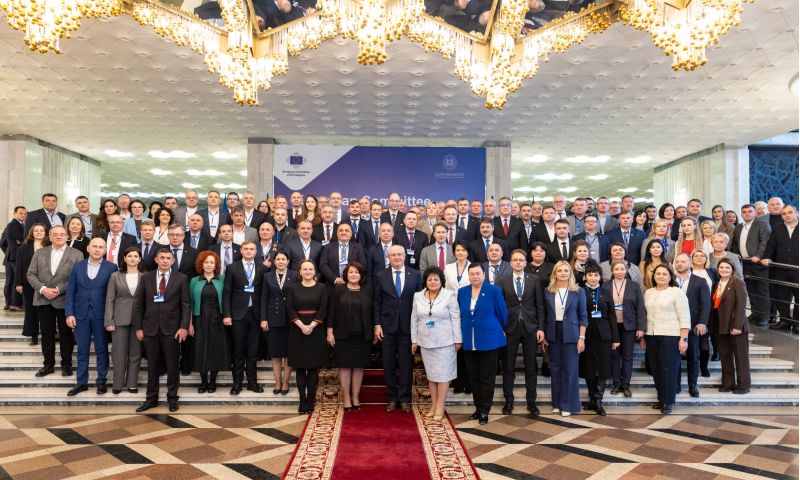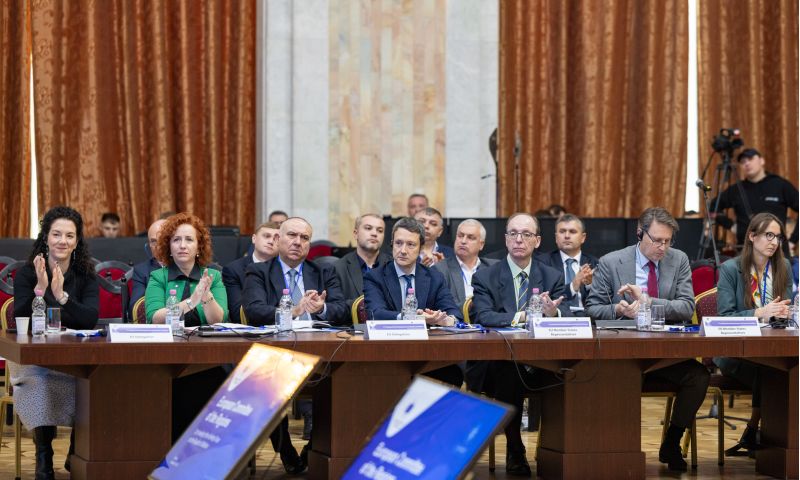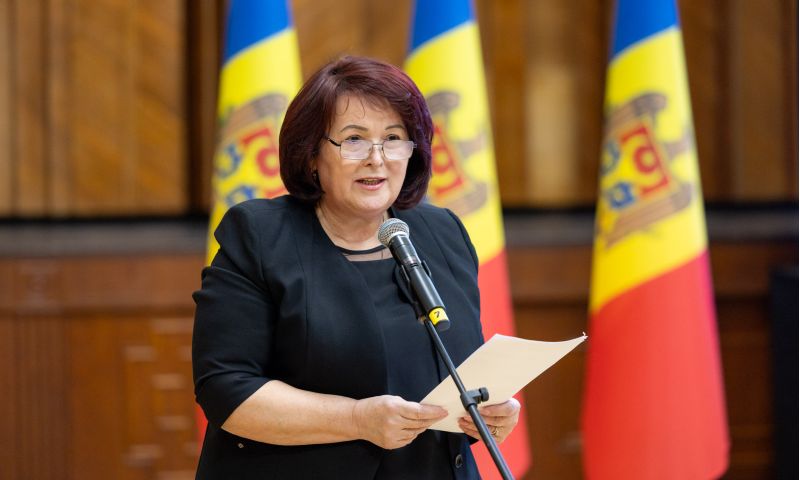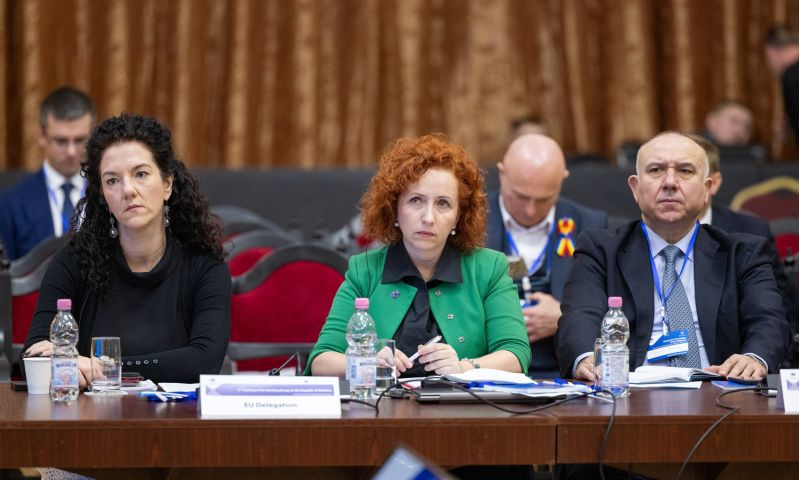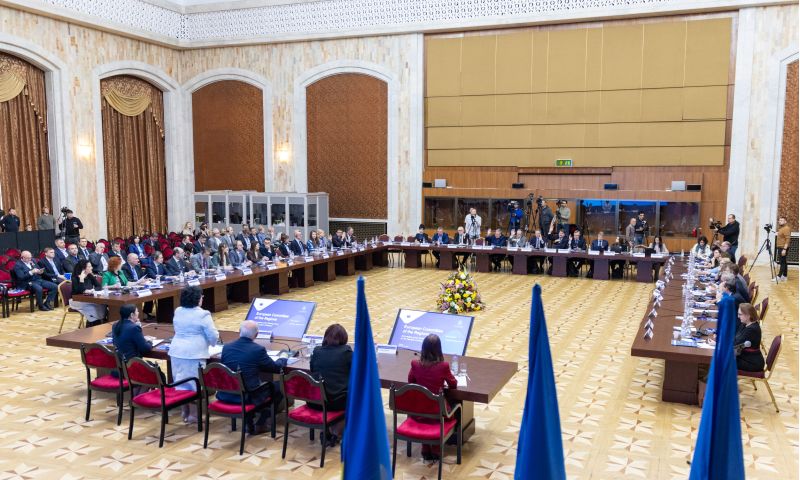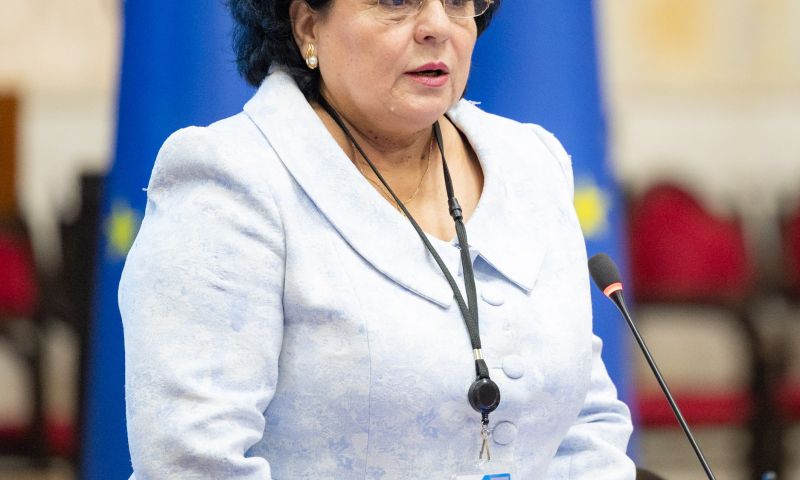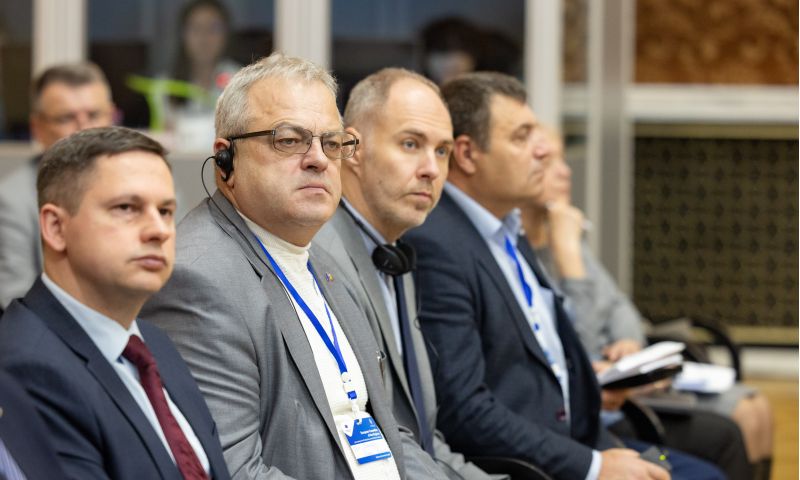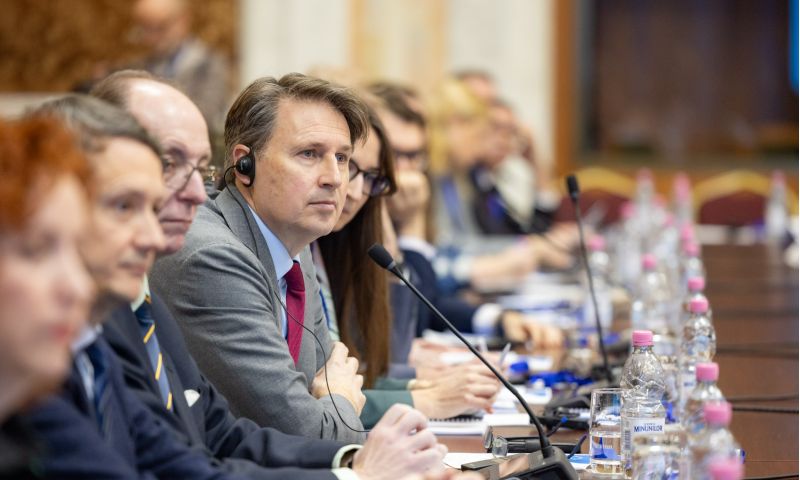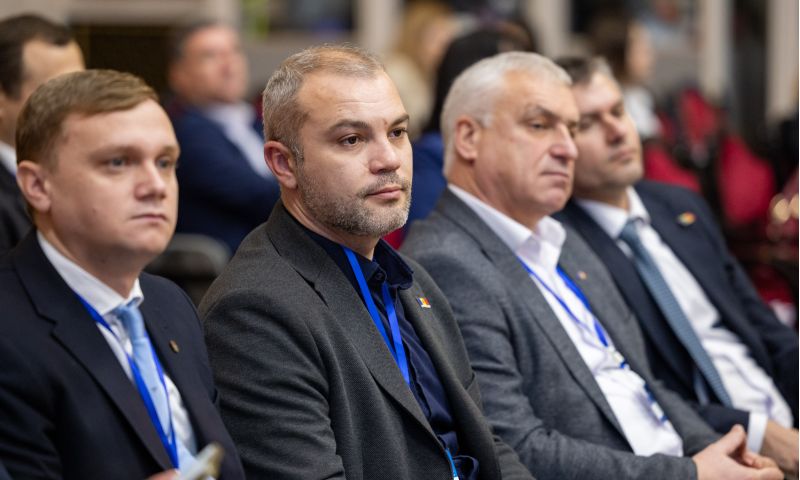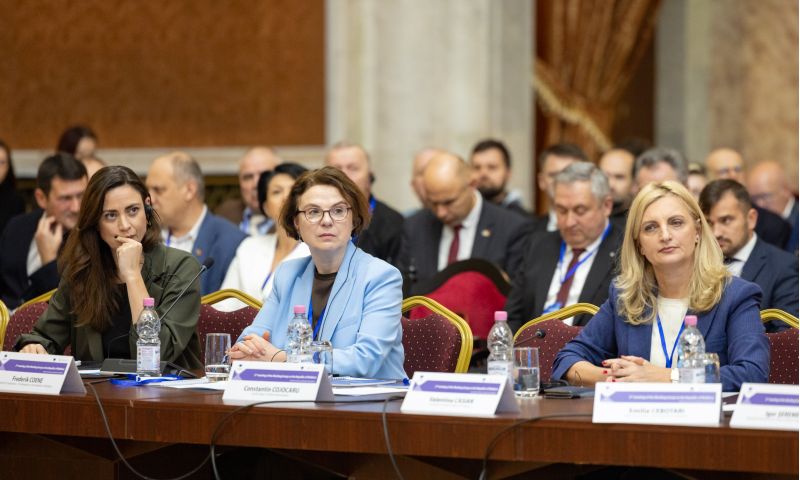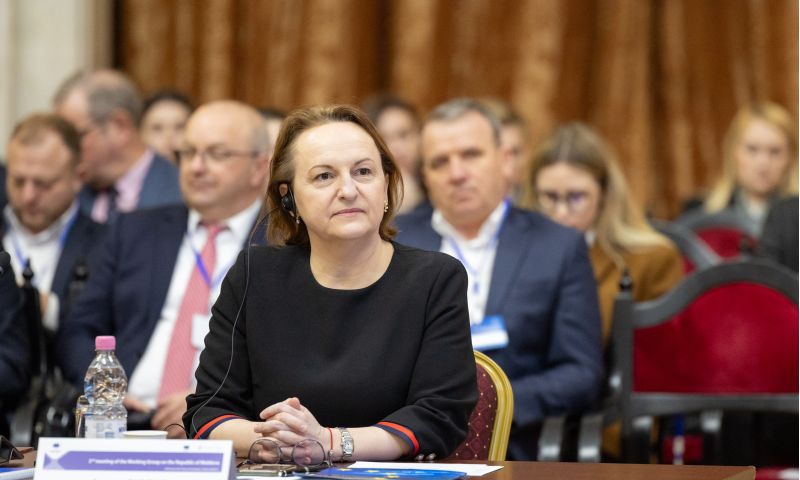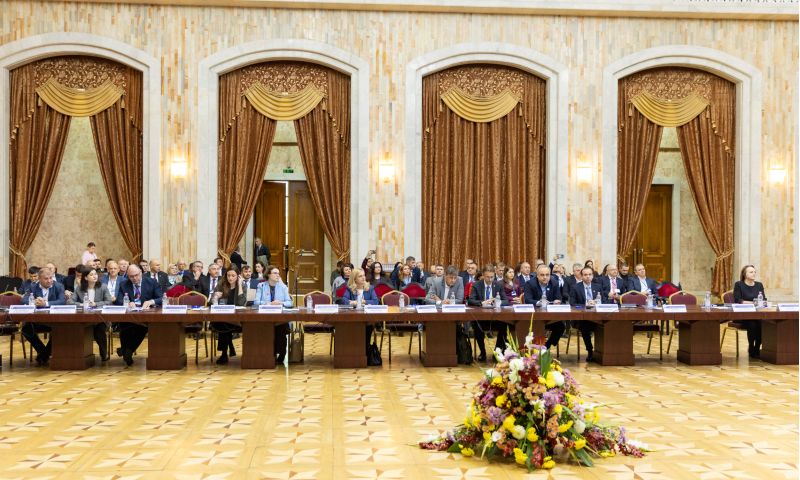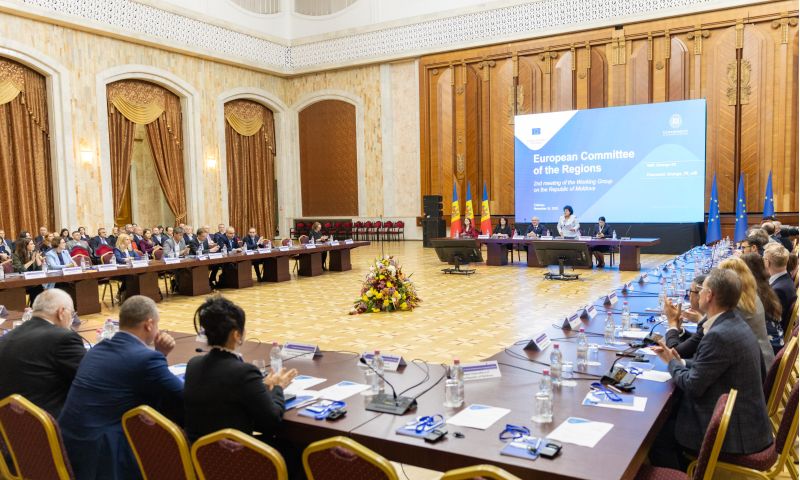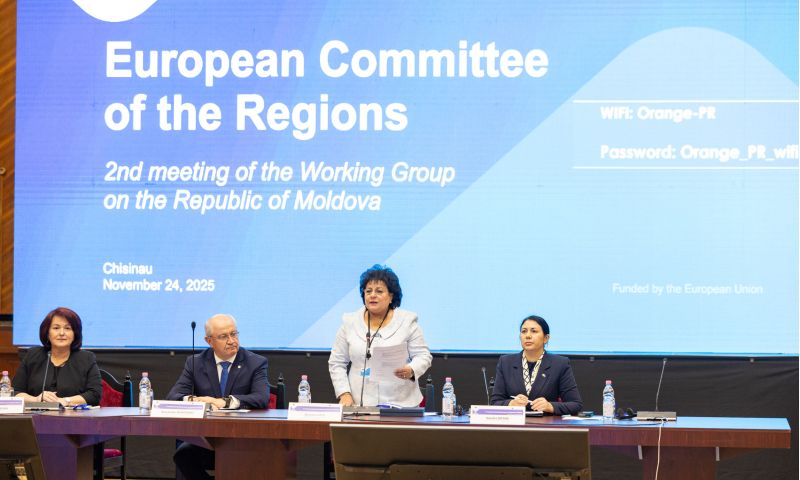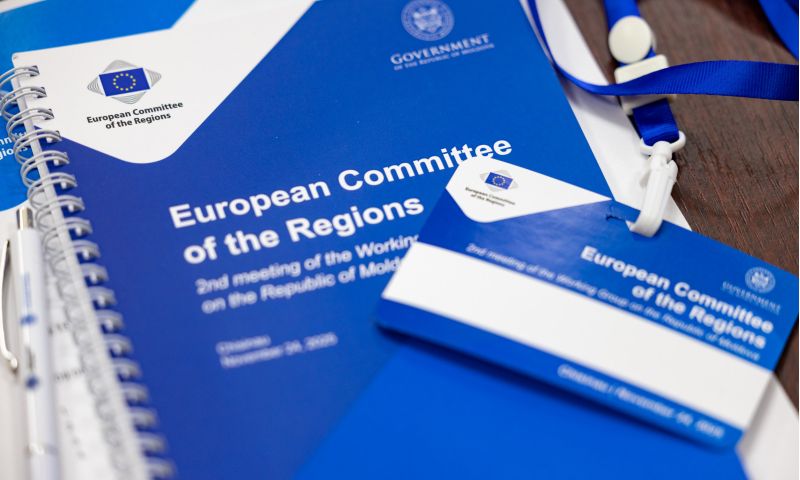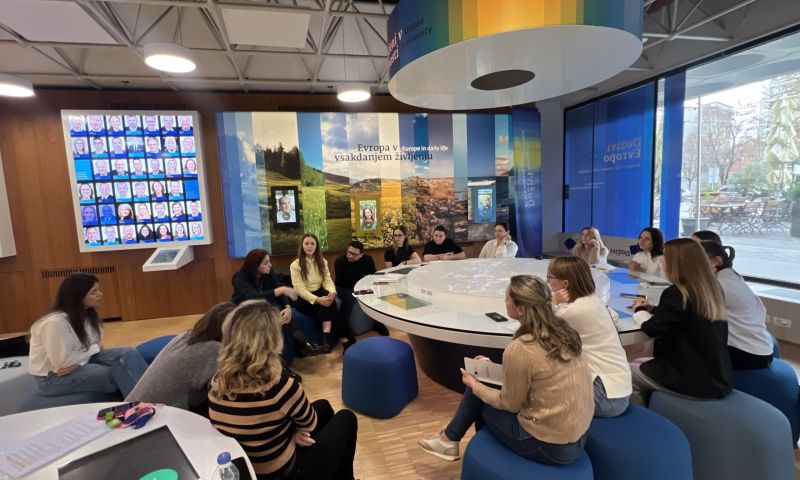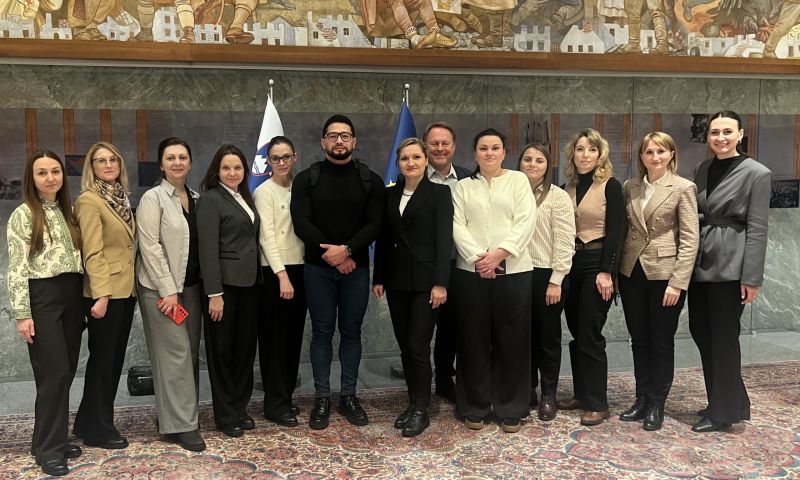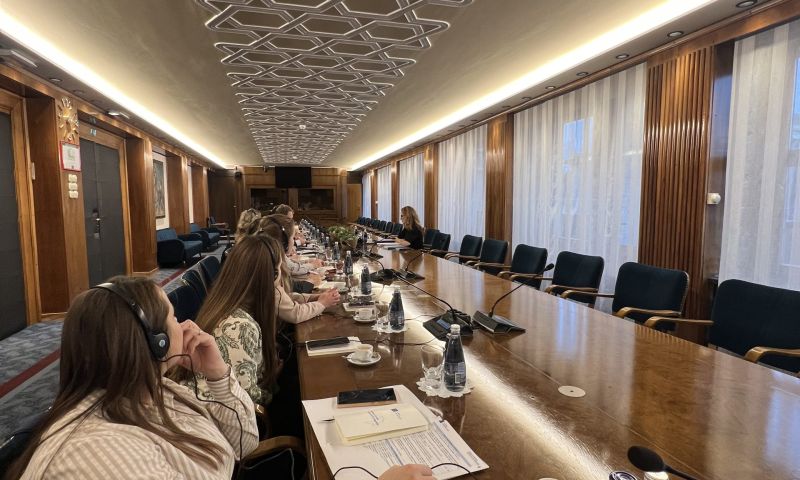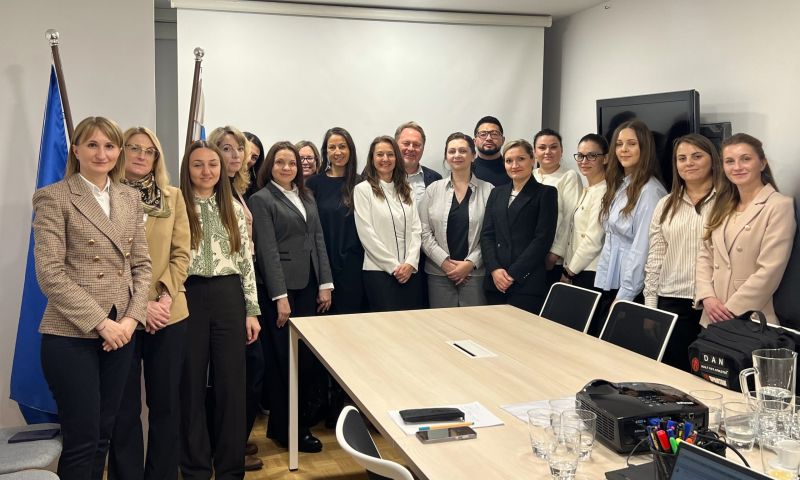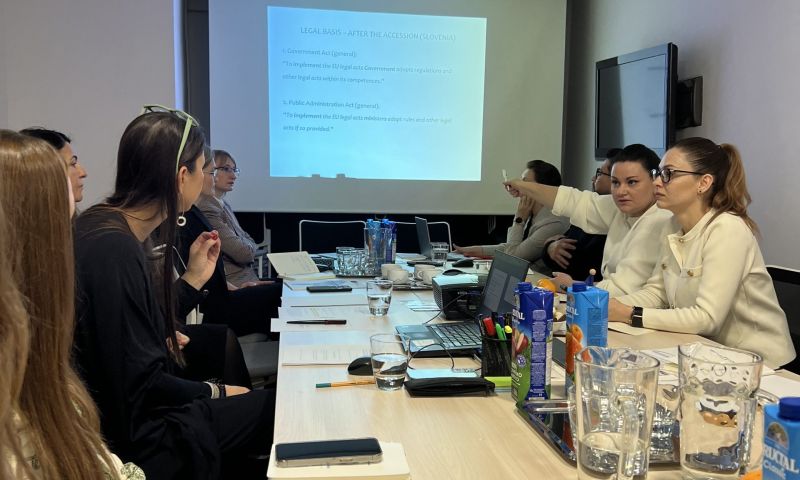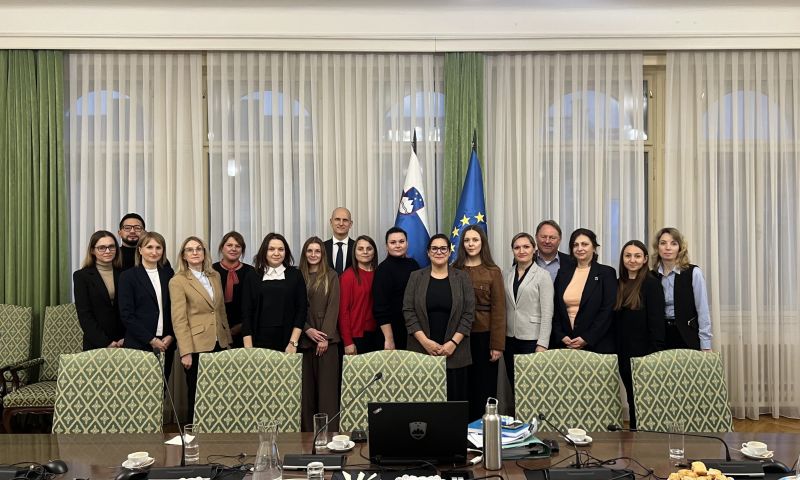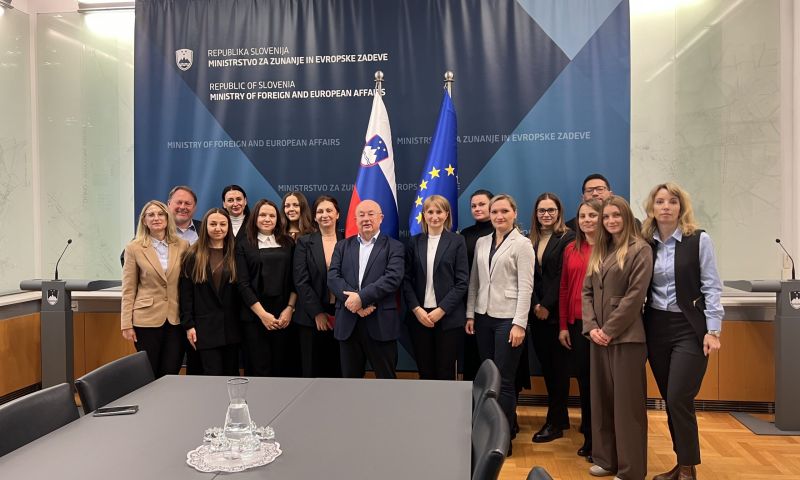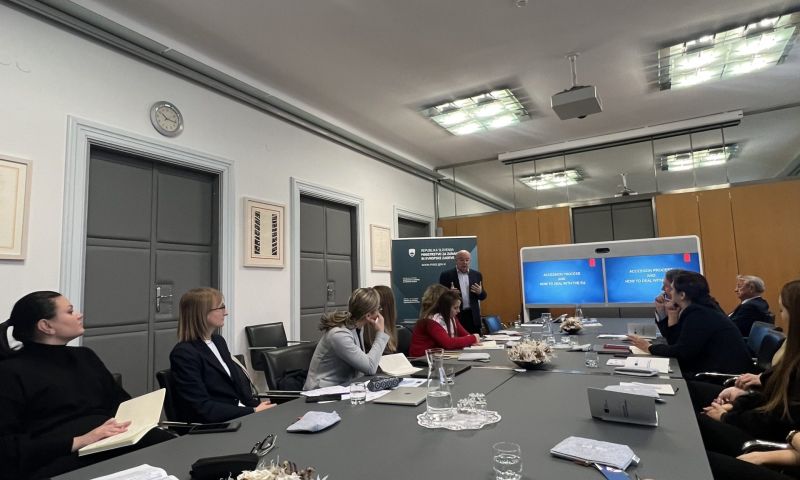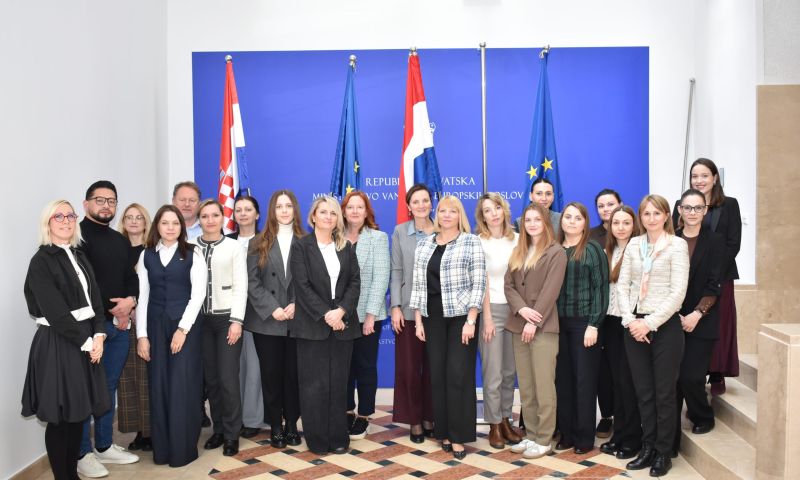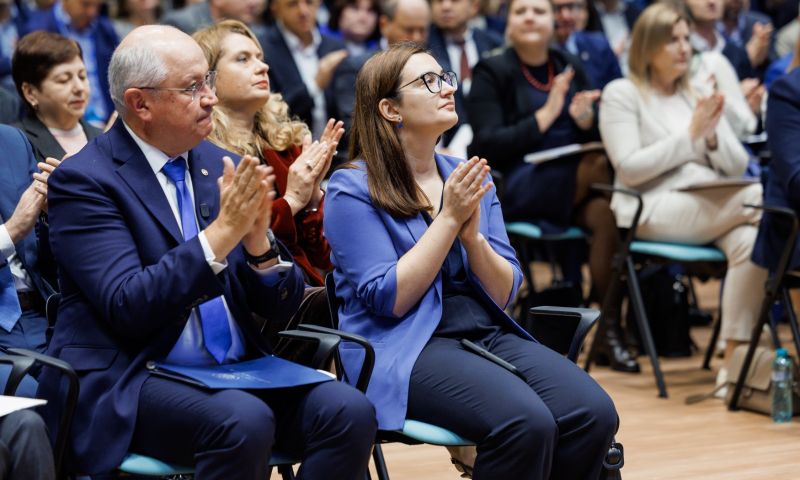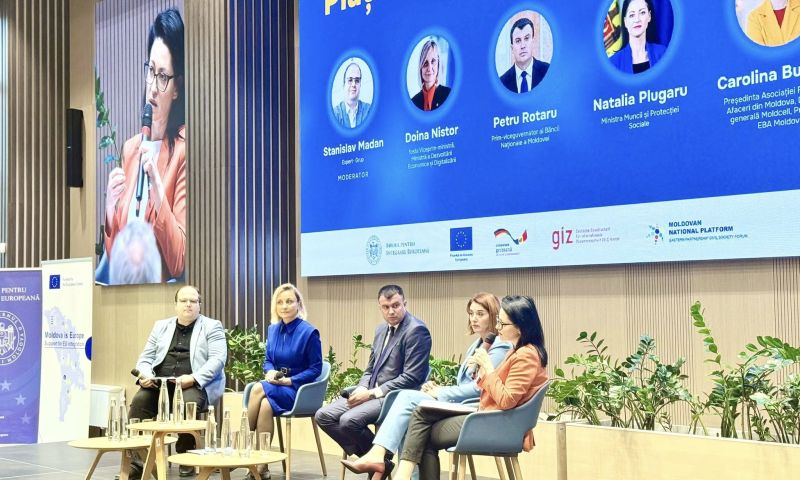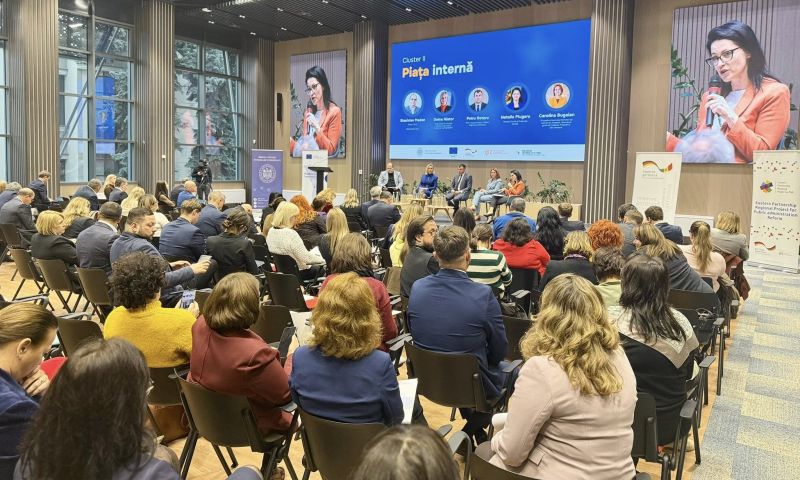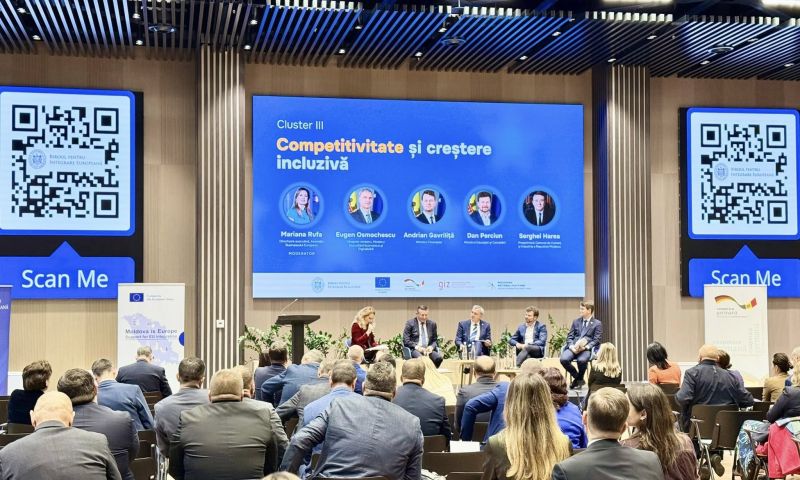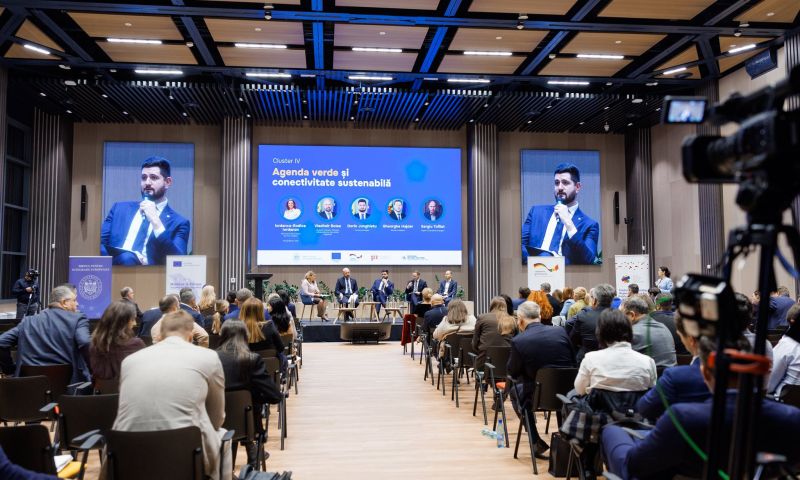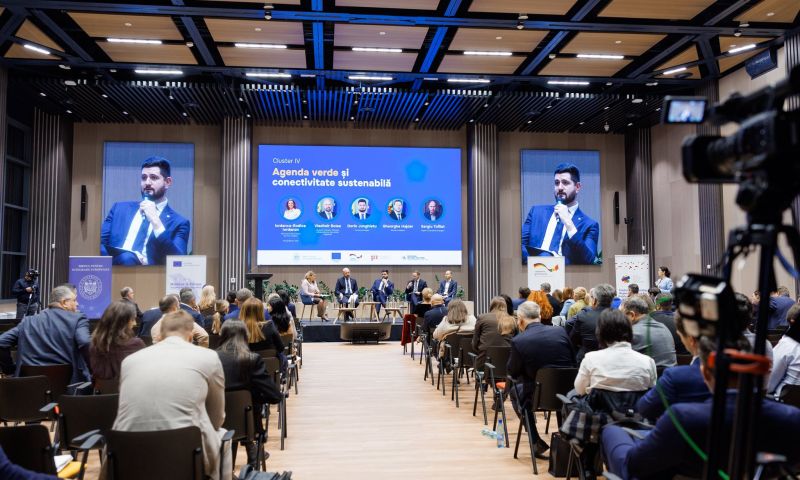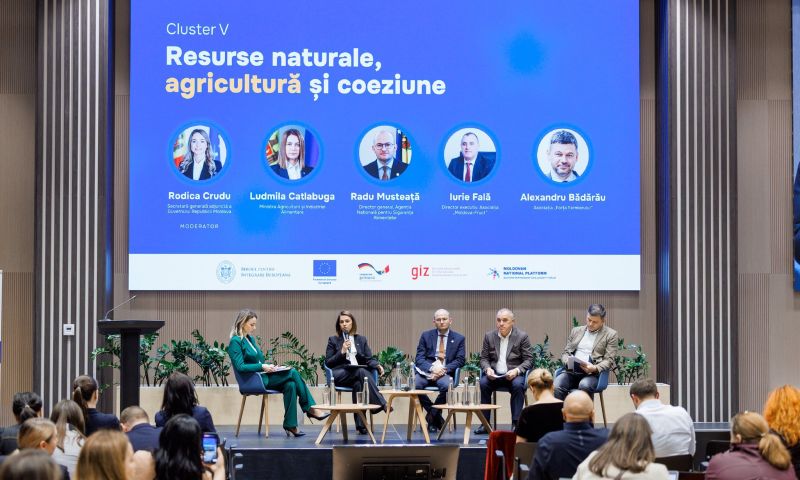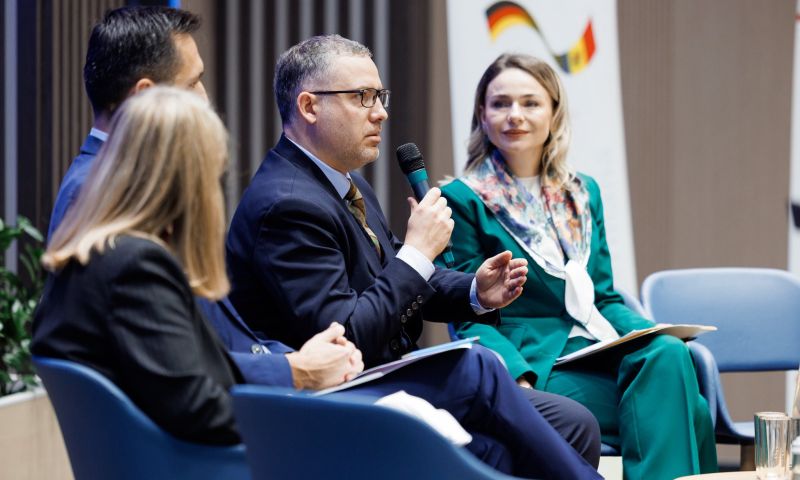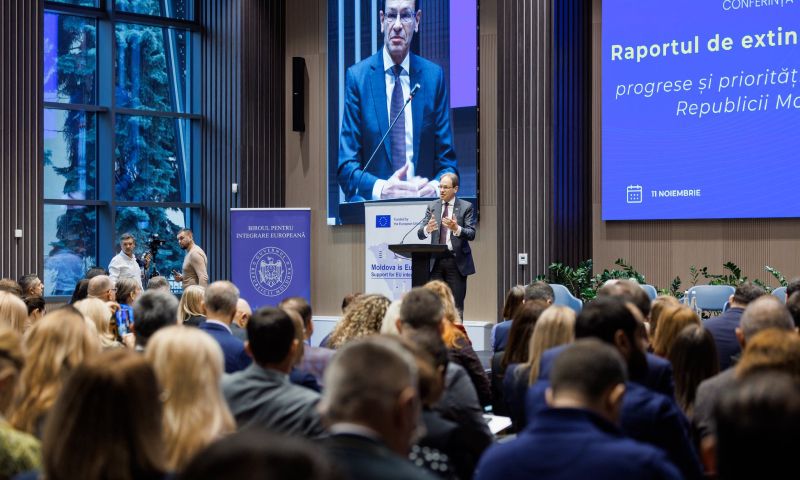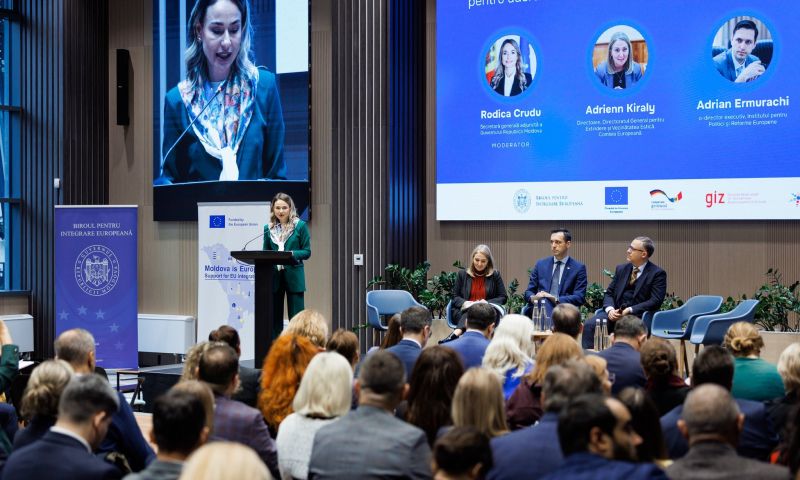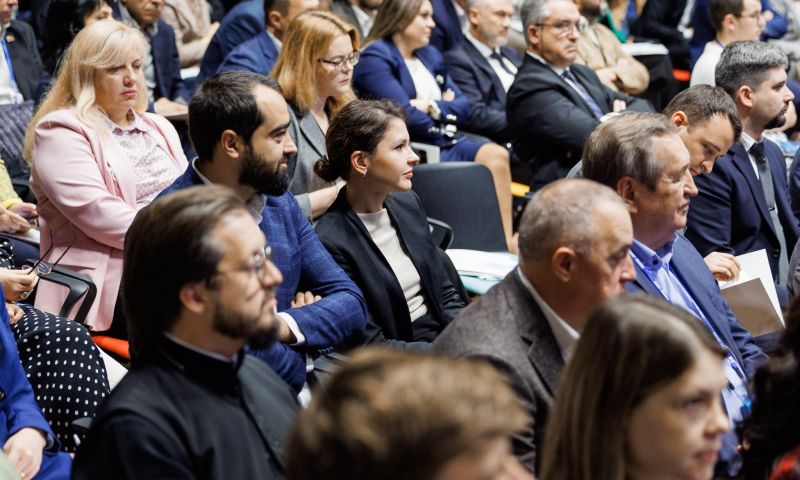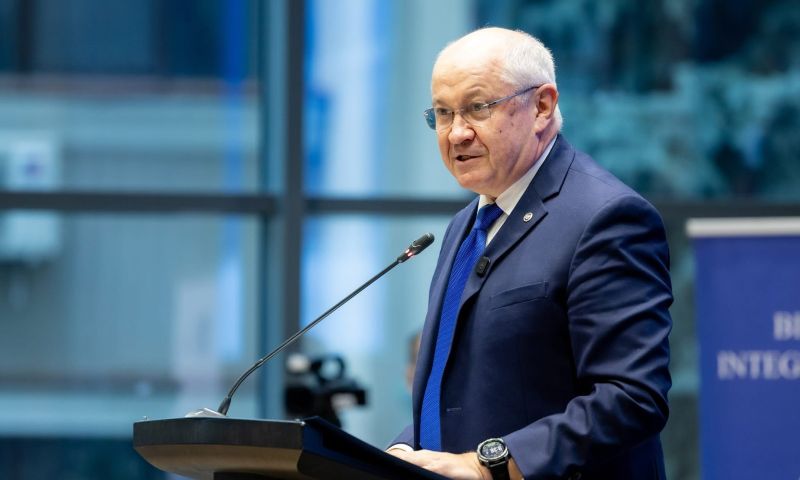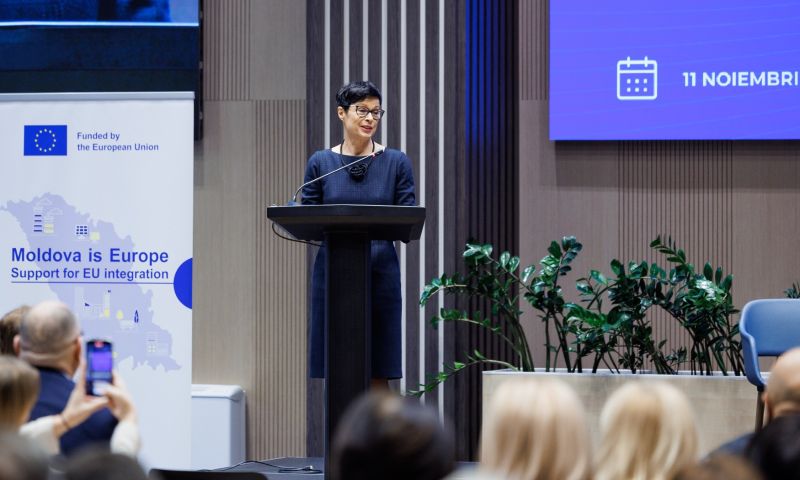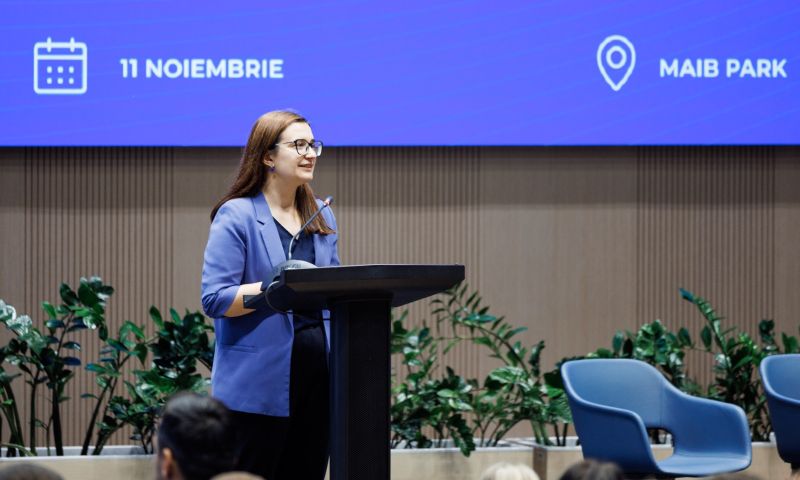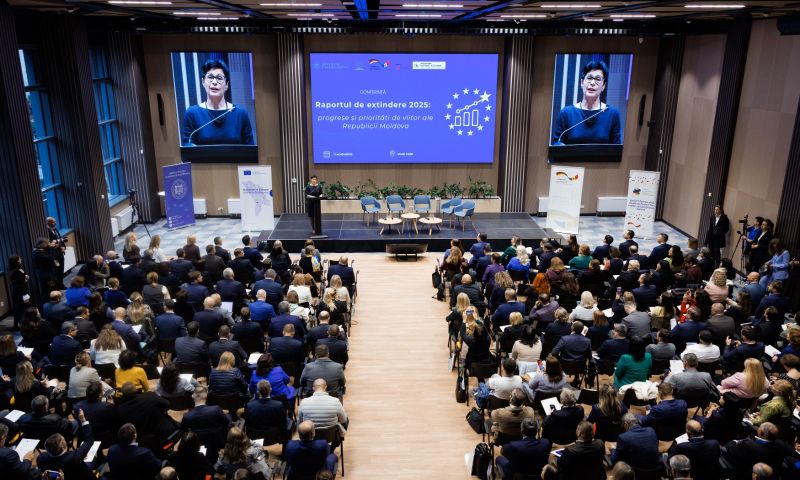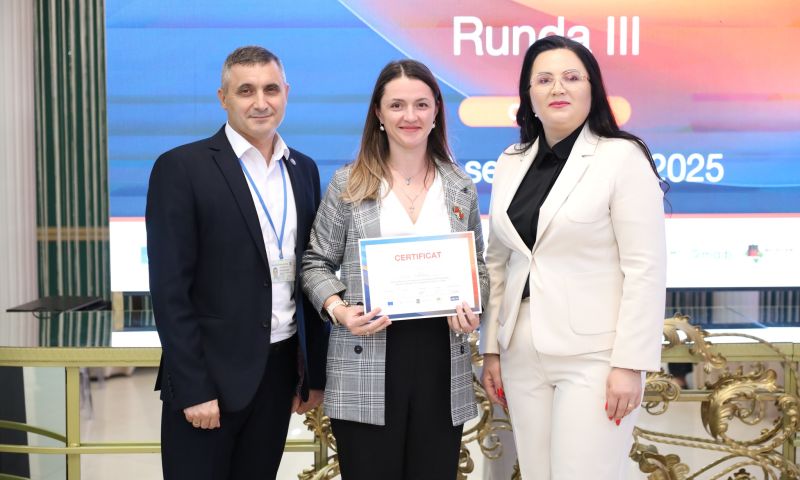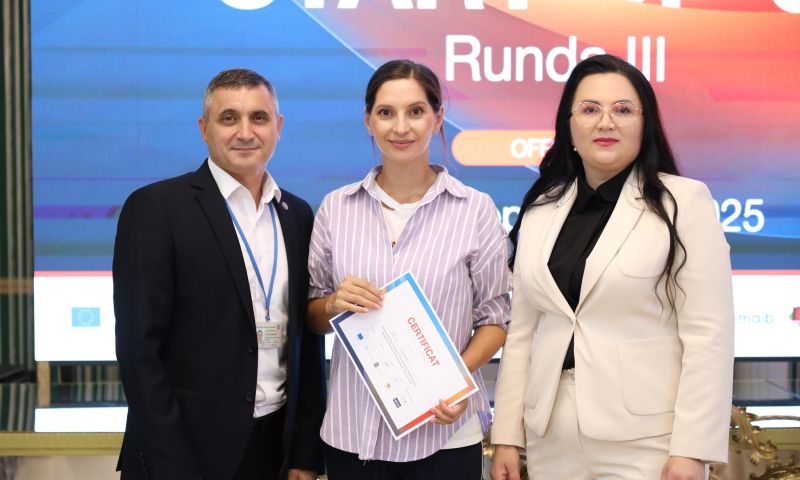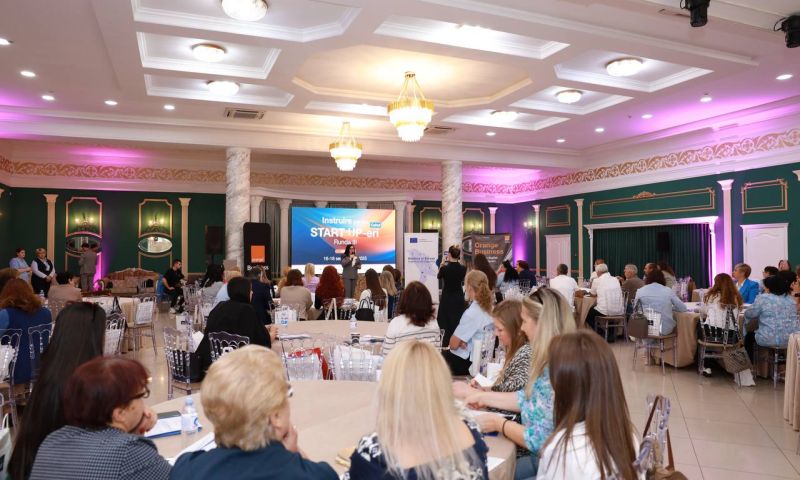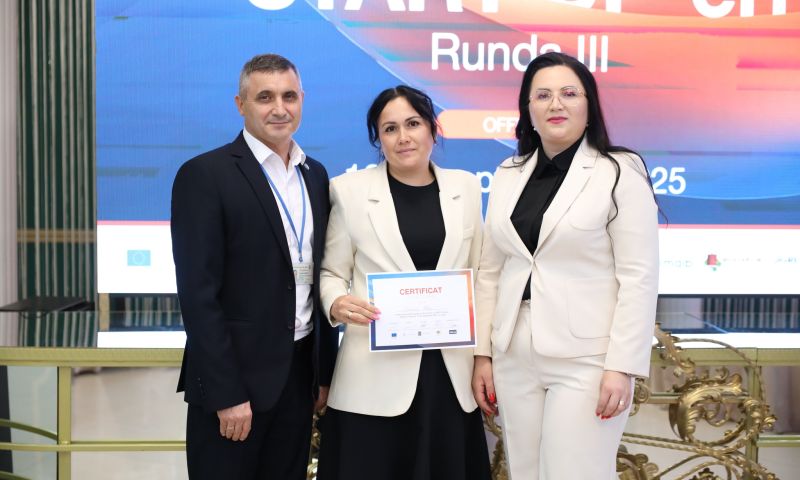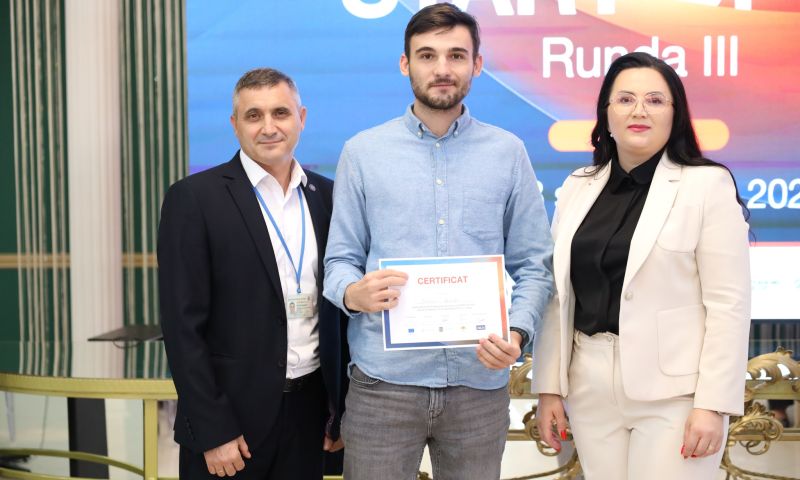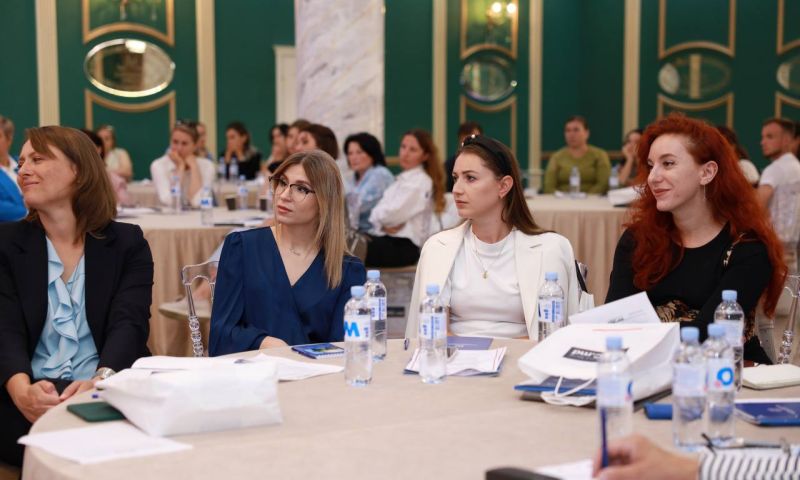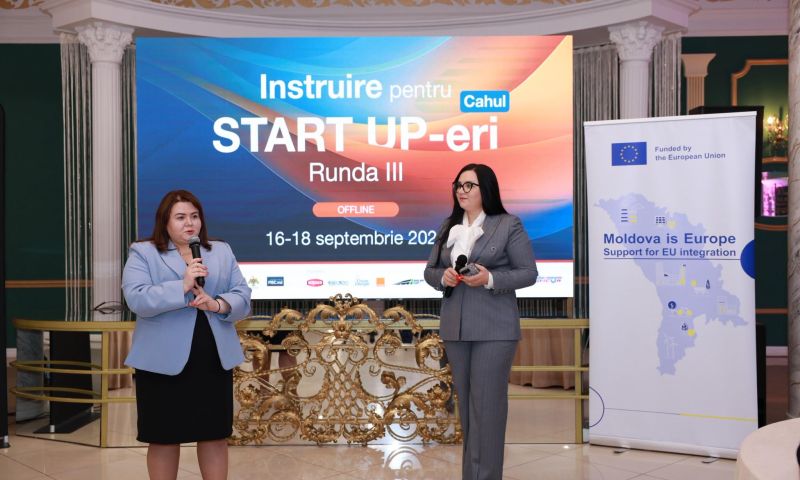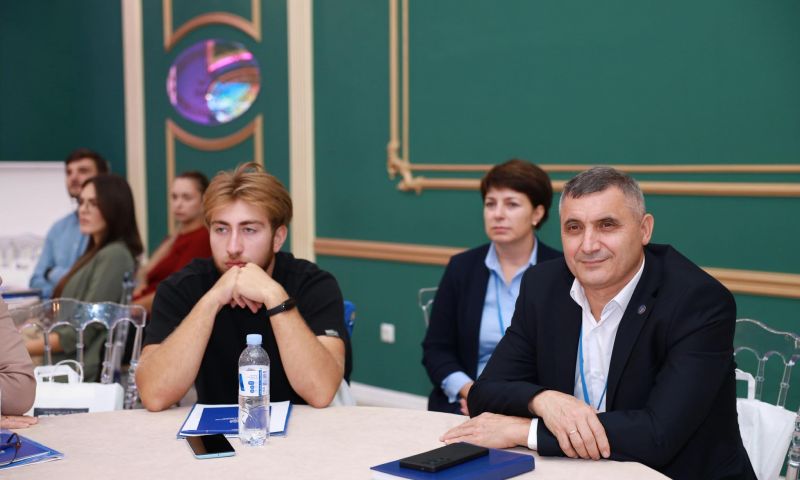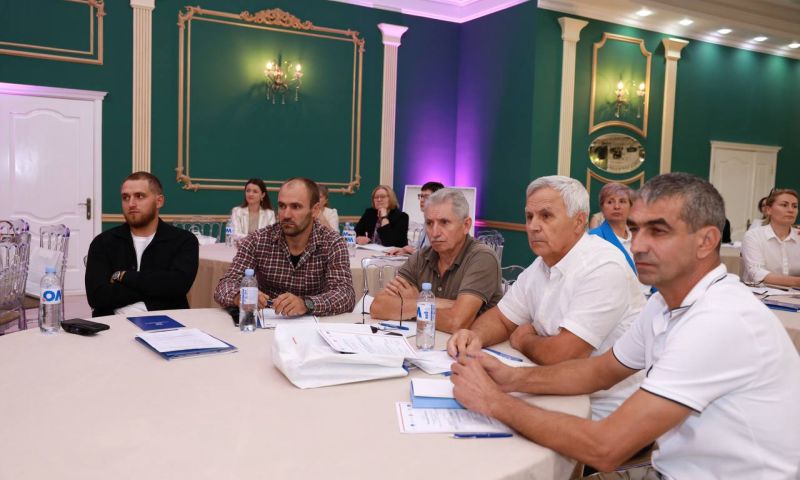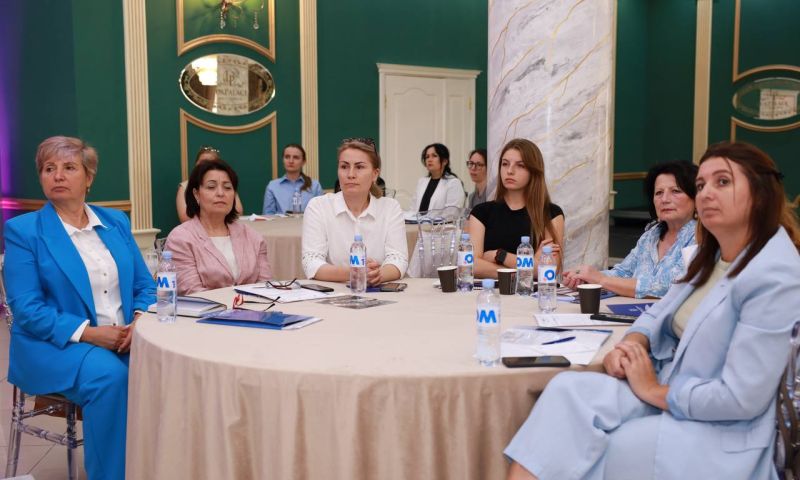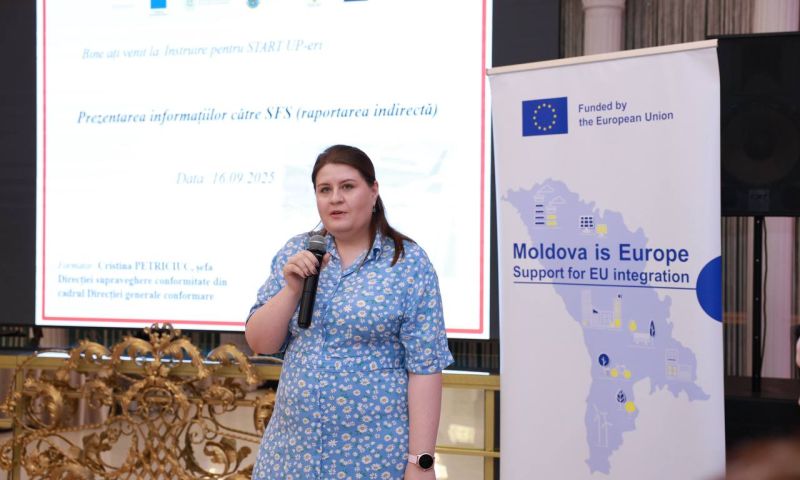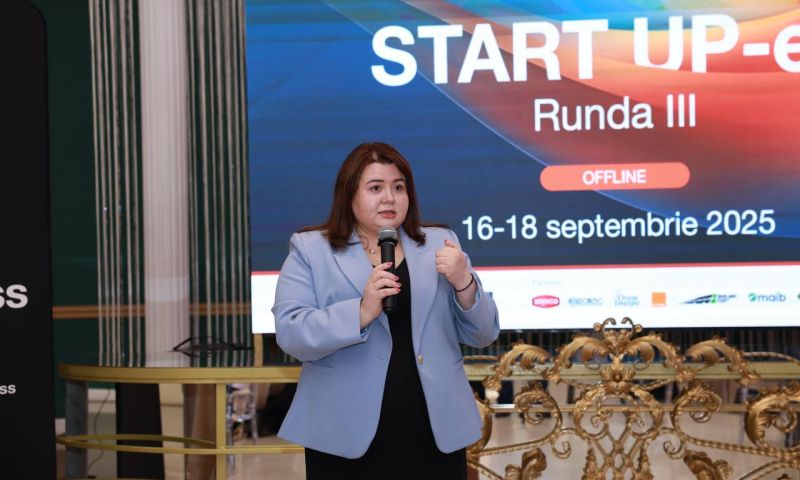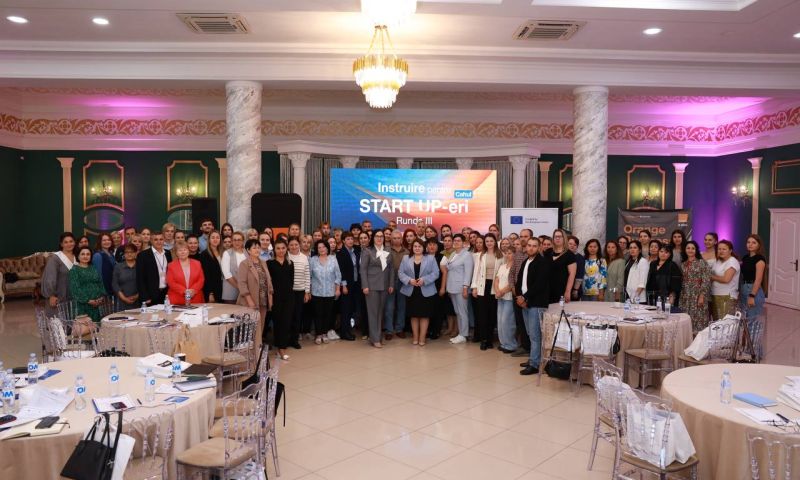Moldova este Europa –
Sprijin pentru integrarea în UE
Acest proiect sprijină autoritățile Republicii Moldova în procesul de construire a unor sisteme de guvernare responsabile și reziliente, în contextul integrării europene.
Proiectul are drept scop creșterea capacității interne a administrației publice din Republica Moldova prin oferirea de instrumente care să contribuie la transformarea acesteia într-un angajator atractiv. De asemenea, în cadrul proiectului funcționarii publici sunt instruiți pentru a înțelege mai bine, a concepe și a implementa politici și reforme, în special în ceea ce privește transpunerea și aplicarea acquis-ului comunitar.
Proiectul sprijină integrarea europeană a Moldovei prin:
- Desemnarea Înalților Consilieri UE care oferă sprijin pe termen lung actorilor-cheie din administrația centrală în dezvoltarea și implementarea reformelor, precum și în transpunerea și aplicarea legislației UE.
- Furnizarea de expertiză tehnică specializată și acțiuni de consolidare a capacității instituționale, precum și materiale pentru îmbunătățirea eficienței și capacității instituțiilor.
- Crearea unui program de stagii pentru studenți și tineri absolvenți în instituțiile publice din Moldova. Această inițiativă are scopul de a atrage tinerii către serviciul public și de a consolida capacitatea administrativă a Republicii Moldova.
ECHIPA PROIECTULUI
Țara: Lituania
Domeniu: Anticorupție
Instituția: Serviciul Prevenirea si Combaterea Spălării Banilor
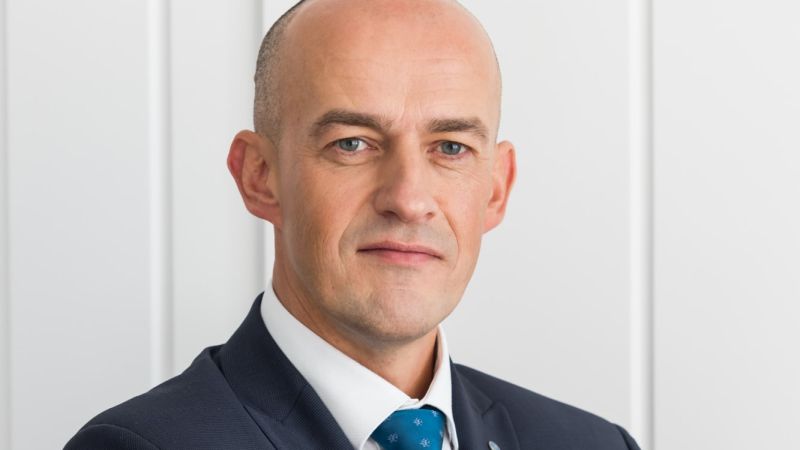
Žydrūnas Bartkus a acumulat o vastă experiență atât la nivel național, cât și internațional în organizarea și implementarea strategiilor anticorupție și de combatere a spălării banilor, în crearea și îmbunătățirea sistemelor de recuperare și gestionare a activelor, precum și în promovarea cooperării interinstituționale și internaționale. Domnul Bartkus are o experiență de peste 24 de ani în sector, deținând anterior funcții de conducere la nivel superior în instituțiile relevante lituaniene, inclusiv cea de director al Serviciului de Investigații Speciale din Lituania, în perioada 2018 – 2023. De asemenea, a deținut funcția de Președinte al rețelei ”Partenerii Europeni împotriva Corupției” (EPAC/EACN), o rețea care reunește peste o sută de instituții din aproape 40 de țări europene. Are o experiență internațională, în calitate de lider de proiect în proiecte Twinning în Azerbaidjan și Republica Moldova.
Țara: Lituania
Domeniu: Dezvoltarea sectorului agro-alimentar
Instituția: Ministerul Agriculturii și Industriei Alimentare
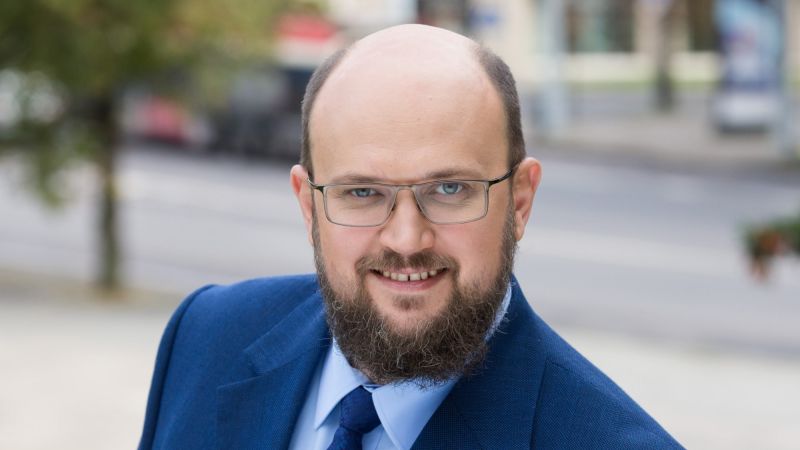
Un profesionist de înaltă calificare cu peste 21 de ani de experiență în roluri importante în sectorul agroalimentar al administrației publice din Republica Lituania. Rolandas a excelat în funcții precum Șef de Departament, Director Adjunct, Director, Președinte, Consilier Principal și Ministru Adjunct.
Parcursul său profesional a început cu contribuții esențiale la aderarea Lituaniei la Uniunea Europeană, implicat direct în responsabilitățile juridice legate de capitolele agroalimentare ale Tratatului de Aderare. Rolandas a fost un actor-cheie în stabilirea unui model de coordonare și a reprezentat activ interesele naționale în procesele legislative, atât la Consiliul UE și grupurile sale de lucru, cât și în forumurile de lucru ale Comisiei Europene. Implicarea sa s-a extins la conturarea diverselor roluri în toate reformele ulterioare ale Politicii Agricole Comune (PAC), începând cu reforma Comisarului Fischler din 2003.În timpul Președinției Lituaniei la UE în 2013, Rolandas a prezidat Comitetul Special pentru Agricultură (SCA) al Consiliului UE. În această calitate, a condus negocierile și a finalizat prima reformă PAC, realizată prin procedura de co-decizie cu Parlamentul European, pentru perioada 2014-2020. A gestionat și alte dosare legislative majore din sectorul agroalimentar din acea perioadă.
Având experiență directă asupra evoluției PAC în ultimele două decenii, inclusiv asupra provocărilor, oportunităților și interacțiunilor acesteia cu alte politici ale UE, cum ar fi Green Deal, Rolandas este bine echipat pentru a oferi perspective și sfaturi adaptate pentru nevoile în continuă schimbare ale beneficiarilor. Implicarea sa directă în diverse activități și acțiuni ale guvernului lituanian și ale Ministerului Agriculturii, legate de diplomația economică și promovarea comerțului intra- și extra-UE cu produse agroalimentare naționale, îi sporește și mai mult valoarea în atingerea obiectivelor proiectului, inclusiv sprijinul pentru îndeplinirea angajamentelor prevăzute în cadrul Acordului de Asociere (AA) și al Zonei de Liber Schimb Aprofundat și Cuprinzător (DCFTA).
Țara: România
Domeniu: Servicii financiare
Instituția Banca Națională a Moldovei
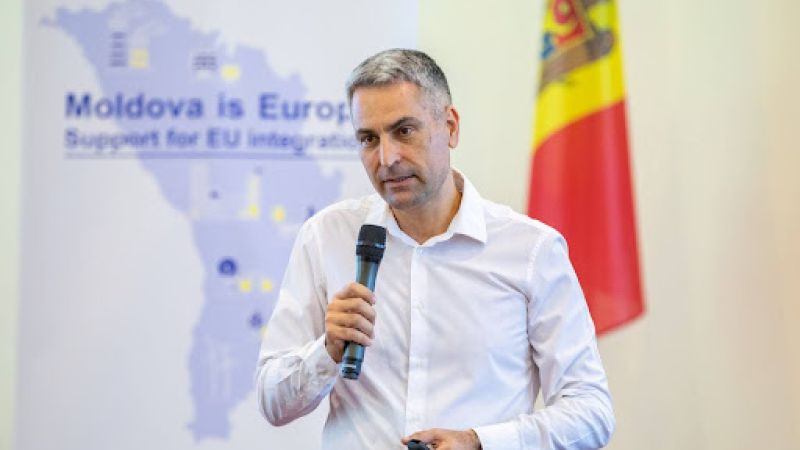
Cu peste 22 de ani de experiență acumulată în cadrul Băncii Naționale a României, Nicolae a fost implicat activ în procesul de cooperare cu organismele internaționale responsabile de reglementarea și supravegherea sectorului financiar, fiind membru în diverse colegii de supraveghere, grupuri de lucru și comitete ale instituțiilor financiare internaționale.
Înainte de a prelua rolul de Înalt Consilier UE pe domeniul serviciilor financiare în Republica Moldova, Nicolae Grigore a ocupat funcția de Șef al Departamentului pentru Prevenirea Spălării Banilor și Monitorizarea Aplicării Sancțiunilor Internaționale din cadrul Direcției Supraveghere a Băncii Naționale a României. De asemenea, în calitate de Expert Senior UE, el a acordat suportul necesar Băncii Naționale a Moldovei în implementarea standardelor internaționale și a celor mai bune practici în supravegherea bancară, oferind totodată asistență în dezvoltarea capacităților necesare pentru elaborarea și implementarea Procesului de Supraveghere și Evaluare, în conformitate cu standardele UE.
Țara: România
Domeniu: Justiție și procuratură
Instituția: Ministerul Finanțelor, Procuratura Generală
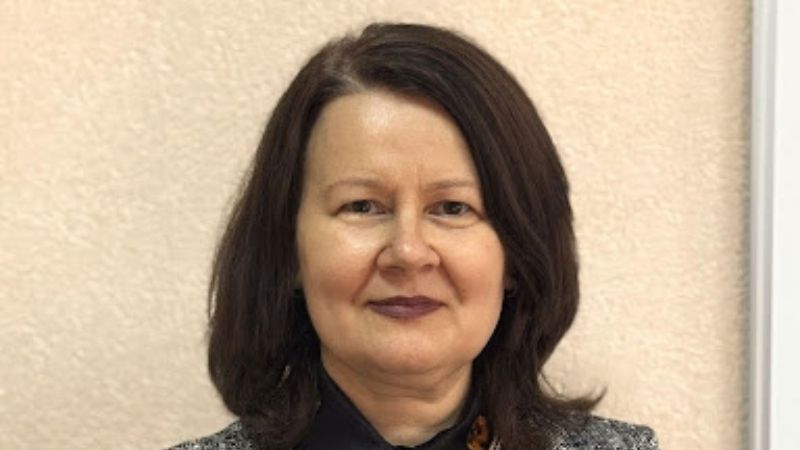
Gabriela Scutea are o carieră de 27 de ani în cadrul Parchetului de pe lângă Înalta Curte de Casație și Justiție (Ministerul Public). A ocupat funcția de procuror general din februarie 2020 până în februarie 2023. Pe lângă pozițiile manageriale de la Ministerul Public ( 2006-2013 – procuror general adjunct și procuror șef în cadrul oficiilor teritoriale din regiunea Brașov), a lucrat în calitate de secretar de stat în Ministerul Justiției al României în 2016.
În calitatea sa de procuror la nivel înalt, Gabriela a participat activ la reuniunile CCPE (formatul Consiliului Europei) și Forumul Consultativ (formatul statelor membre UE).
În perioada 2013-2016, a acționat în cadrul Reprezentanței Permanente a României pe lângă UE, acoperind domeniul Justiției, inclusiv instrumentul specific Mecanismului de Cooperare și Verificare a României (referințe privind independența și eficiența justiției, precum și combaterea corupției).
Gabriela Scutea asistă conducerea Ministerului Justiției în calitate de Înalt Consilier UE din septembrie 2023.
Țara: România
Domeniu: Coordonarea reformelor
Instituția: Guvernul Republicii Moldova
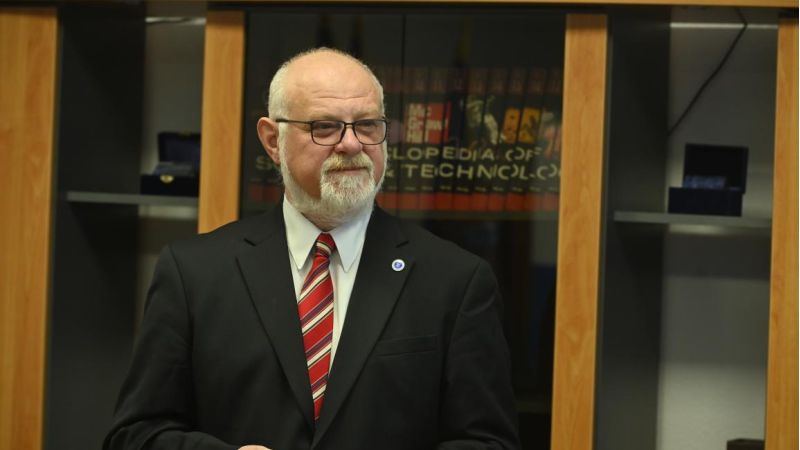
Prof. Dragoș Mihael Ciuparu este inginer chimist de profesie și are un doctorat obținut la Universitatea Paris 7 „Denis Diderot”. A petrecut aproape 7 ani în cadrul Departamentului de Inginerie Chimică al Universității Yale, mai întâi ca cercetător postdoctoral, iar mai târziu ca cercetător științific. La sfârșitul anului 2005 s-a întors la Universitatea Petrol-Gaze din Ploiești, România, înființând un nou grup de cercetare și obținând titlul de profesor. Prof. Ciuparu a publicat peste 70 de lucrări evaluate inter pares, este coautor la 3 cărți tehnice și deține 5 brevete americane.
Implicarea Profesorului Ciuparu în administrația publică și în elaborarea de politici publice a început ca membru al Comisiei Prezidențiale pentru Politici în Educație și Cercetare, recunoscută general ca fiind cea care a contribuit la demararea procesului de reformă sectorială din România, și al Consiliului Național pentru Cercetare Științifică. Între 2010 și 2012 a fost președinte al Autorității Naționale pentru Cercetare Științifică, gestionând elaborarea politicilor publice de cercetare și toate programele de finanțare competitivă a cercetării din România. Începând cu ianuarie 2020 a fost numit secretar de stat pentru cercetare la Ministerul Educației și Cercetării, iar din iunie până în septembrie 2021, a fost secretar de stat pentru cercetare în cadrul Ministerului Cercetării, Inovării și Digitalizării.
Țara: România
Domeniu: Afaceri de securitate internă
Instituția: Ministerul Afacerilor Interne
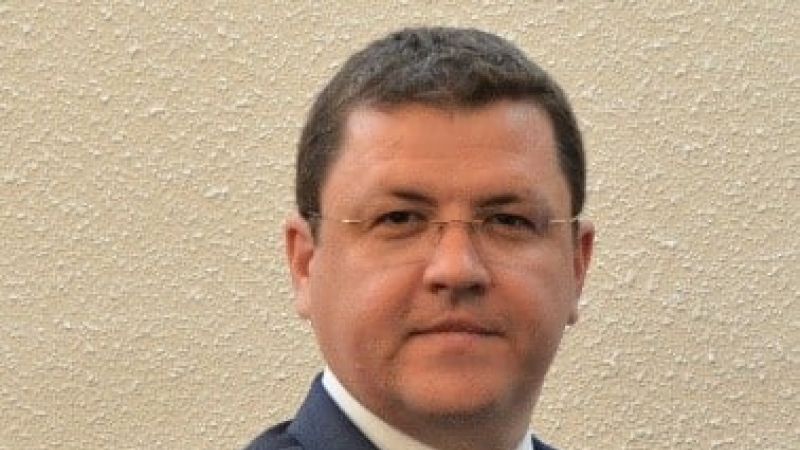
Chestor de poliție, cu peste 21 de ani experiență în Poliția Română, începând ca ofițer de investigații criminale, analist și manager al unităților de analiză a informațiilor și de protecție a martorilor, precum și ca prim-adjunct al Inspectorului General al Poliției Române.
Expertiză în dezvoltarea capacităților administrative, a produselor și serviciilor pentru creșterea siguranței cetățenilor concomitent cu maximizarea eficienței și responsabilității instituționale.
Experiență internațională în realizarea de politici și dezvoltarea de strategii activând la nivel european în calitate de:
- președinte al Comitetului permanent pentru cooperarea operațională în materie de securitate internă din cadrul Consiliului Uniunii Europene
- șef al delegației la Grupul de Lucru pentru Aplicarea Legii din cadrul Consiliului Uniunii Europene
- manager de proiect, lider de componență și expert în proiecte de Twinning, de cercetare, inovare și fonduri de coeziune.
Țara: Germania
Domeniu: Coordonare strategică și afaceri europene
Instituția: Administrația președintelui Republicii Moldova
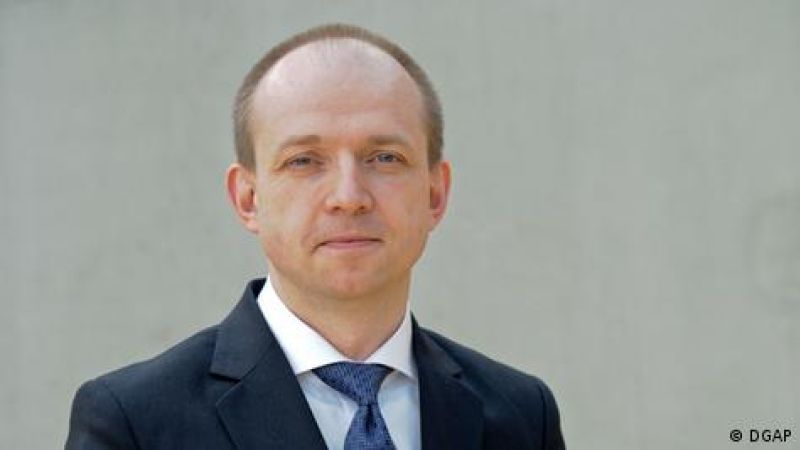
Martin Sieg a activat în calitate de consilier al organizațiilor guvernamentale și neguvernamentale germane și internaționale. Cea mai recentă funcție a sa a fost cea de Director al Konrad-Adenauer-Stiftung din România și Republica Moldova în perioada 2017-2021. Sieg deține doctorate în istorie și științe politice și a predat politici de securitate, integrare europeană și relații externe ale UE la Universitatea Frankfurt/Oder, Freie Universität Berlin și Universitatea Passau.
Alexandru Săndulescu
Țara: România
Domeniu: Energie
Instituția: Ministerul Energiei
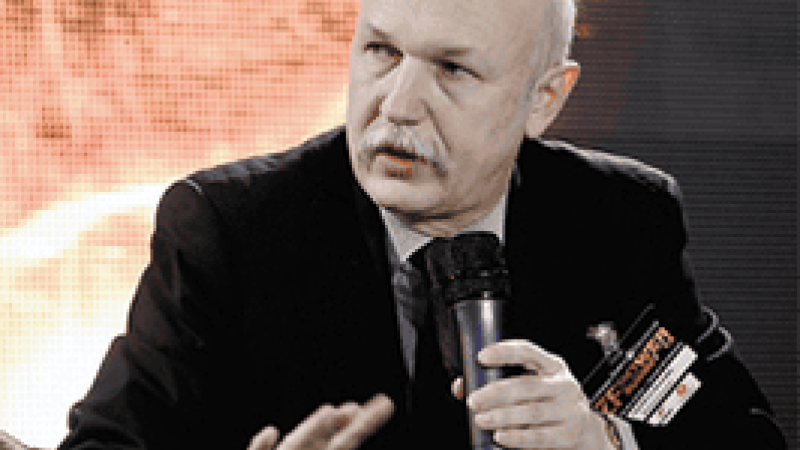
Alexandru Săndulescu este un expert în energie cu o vastă experiență, având peste 40 de ani de activitate profesională. Domnul Săndulescu deține un Masterat în Energie de la Universitatea Tehnică din București și un doctorat în Piețe Energetice. De asemenea, a studiat reglementarea utilităților la Universitatea din Florida, Gainesville, Statele Unite și la Universitatea Sherbrooke din Montreal.
Înainte de actuala sa misiune în Republica Moldova, domnul Săndulescu a deținut mai multe funcții cheie în sectorul energetic din România, inclusiv Director pentru Energie în cadrul Ministerului Economiei din România, precum și Director General la Autoritatea Națională de Reglementare în Energie din România (ANRE), și Cercetător și Director de Programe la ICEMENERG, un institut național de inginerie și cercetare energetică.
În rolul său de Consilier la Nivel Înalt al UE pentru Energie, el oferă consultanță în materie de politici autorităților moldovenești, urmărind crearea unor piețe de energie competitive bazate pe acquis-ul energetic al UE; creșterea securității aprovizionării cu energie prin promovarea interconexiunilor de gaze și electricitate cu rețelele UE; dezvoltarea unui sector energetic durabil prin creșterea utilizării surselor de energie regenerabilă și prin proiecte de eficiență energetică. Transpunerea și implementarea legislației UE în domeniul energiei, alături de avansarea Agendei de Reformă, reprezintă, de asemenea, priorități cheie ale domnului Săndulescu.
Țara: România
Domeniu: Educație, dezvoltarea capitalului uman și cultură
Instituția: Ministerul Educației
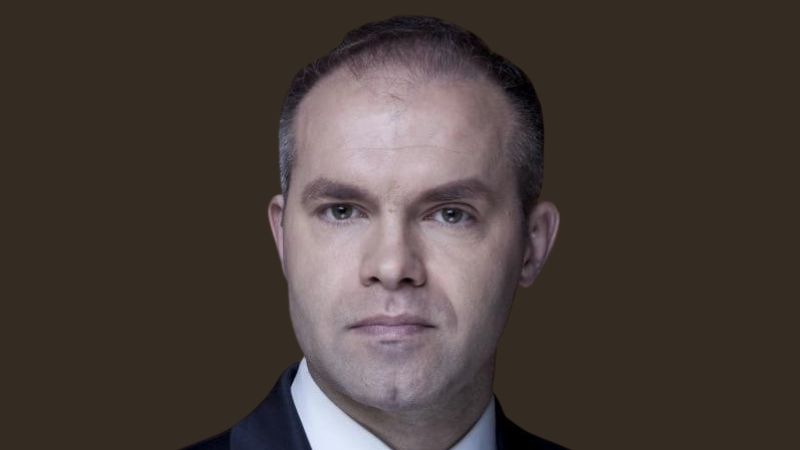
|
Daniel P. Funeriu este cercetător de profesie. În 1999 obține titlul științific de doctor în chimie la Universitatea din Strasbourg sub îndrumarea lui J.- M. Lehn, Laureat al Premiului Nobel. După o perioadă de activitate în calitate de cercetător în cadrul Institutului de Cercetare Scripps din La Jolla, California și al Institutului Național de Știință și Tehnologii Industriale Avansate din Amagasaki, Japonia, în 2006 dl. Funeriu își continuă cariera în cadrul Universității Tehnice din Munchen unde implementează un program de grant de excelență Marie Curie. În 2009 devine membru al Parlamentului European, iar în același an Ministru al Educației, Cercetării, Tineretului și Sportului al României, funcție în care promovează un proces de modernizare profundă a sistemului de învățământ şi cercetării din România, prin adoptarea unei legi noi a educației, urmată de legislație în domeniul cercetării, măsurilor dure de combatere a corupției în sistemul de învățământ, precum și prin sporirea transparenței, lupta împotriva plagiatului și introducerea alocării fondurilor în domeniul cercetării în baza performanței. În perioada 2012 – 2014 este consilier cu rang de ministru al Președintelui României. Înainte de a deveni Înalt Consilier în Republica Moldova dl. Funeriu activa în calitate de cercetător în cadrul Institutului Charles Sadron din Franța. |
Lider de echipă
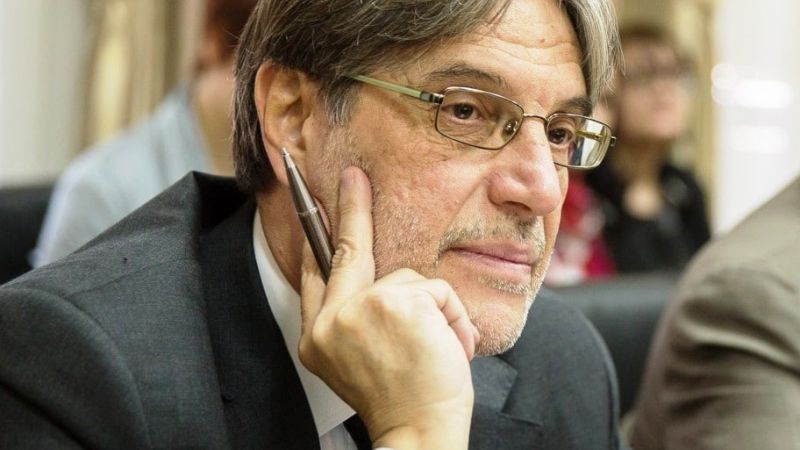
Pavlos Kollias este un economist senior cu o experiență profesională vastă, multisectorială de peste 35 de ani în programare, planificare strategică, formulare și management de programe și proiecte și în coordonarea echipelor multidisciplinare și multinaționale în contextul diferitelor programe/proiecte de consolidare a capacităților în domeniile: Dezvoltare Economică Regională și Locală, Cooperare Transfrontalieră/Transnațională și Interregională, Reforma Administrației Publice, Dezvoltare Organizațională și Resurselor Umane, Ocuparea Forței de Muncă/Piața Muncii și Politici Sociale, Educație și Formare Profesională, Dezvoltare Afaceri și IMM-uri. A lucrat la nivel internațional în ultimii 23 de ani și ca lider de echipă/expert senior în contextul unui număr mare de proiecte finanțate de UE (PHARE, ISPA, SAPARD, CARDS, IPA, Instrumentul european de vecinătate, NDICI) în 14 țări candidate sau asociate UE în Europa Centrală și de Est, Balcani și Regiunea de Vecinătate/EaP; Experiență suplimentară ca specialist în management instituțional pentru Banca Mondială în Orientul Mijlociu.
O carieră de consultanță internațională extinsă, dedicată evaluării și îmbunătățirii structurilor de guvernanță la nivel central, regional și local:
- sprijinind formularea programelor naționale și sectoriale și conceperea strategiilor și politicilor naționale și sectoriale/regionale de dezvoltare,
- oferind asistență tehnică și sprijin pentru consolidarea capacităților instituționale pentru administrația publică, ministerele și agențiile sectoriale/regionale care îndeplinesc funcții încredințate autorităților de management, plăți și/sau organismelor intermediare din țările de preaderare la UE și/sau le sprijină în etapele post-aderare,
- asistând guvernele țărilor asociate UE din vecinătate în implementarea acordurilor de asociere cu UE pentru consolidarea capacităților administrative, proiectarea/gestionarea procesului de construire a parteneriatului, elaborarea/implementarea Strategiilor și Programelor Naționale de Dezvoltare, Planurilor de Dezvoltare Regională și Programelor Operaționale Sectoriale/Regionale, integrarea priorităților strategice naționale/regionale cu propriile obiective de politică ale regiunilor, utilizând potențialul endogen și avantajele comparative ale acestora pentru a spori competitivitatea regională și locală și dezvoltarea proiectelor respective.
Expert cheie 2 – Adjunct al liderului de echipă
Reforme instituționale și armonizare legislativă
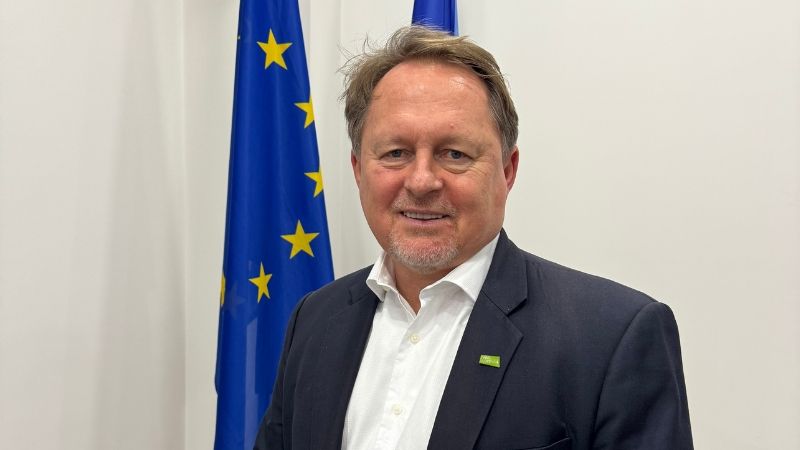
Primož Vehar este jurist din Slovenia, cu studii aprofundate și un master în științe politice, axat pe organizarea procesului de armonizare legislativă în cadrul aderării la Uniunea Europeană.
Și-a început cariera (care are o durată de peste 30 de ani) în administrația publică slovenă, unde a activat ca jurist – redactare acte juridice, responsabil de organizarea armonizării legislative și de implementarea Acordului de Asociere în cadrul Oficiului Guvernamental pentru Legislație. De asemenea, a petrecut un an în sistemul judiciar, perioadă în care a promovat examenul de admitere în avocatură. În timpul negocierilor de aderare a Sloveniei la UE, a oferit asistență juridică echipei principale de negociere și a lucrat îndelung în domeniul armonizării legislative.
În ultimii doi ani ai negocierilor, a deținut funcția de secretar al Comisiei pentru Afaceri Europene din Parlamentul Național, contribuind la înființarea acesteia și la implementarea modificărilor Regulamentului Parlamentului în vederea pregătirii pentru aderarea la UE. Totodată, a făcut parte din echipa care a elaborat amendamentele constituționale și Legea privind cooperarea dintre Parlamentul Național și Guvern în domeniul afacerilor europene.
Implicarea sa în toate cele trei ramuri ale puterii de stat (executivă, judecătorească și legislativă) în timpul și imediat după procesul de aderare i-a permis să treacă, în anul 2005, la activitatea de consultant juridic independent, oferind în principal sprijin țărilor din Balcanii de Vest în cadrul proiectelor finanțate de UE, axate pe armonizarea legislativă și organizarea negocierilor de aderare.
Primož Vehar a activat timp de cinci ani în calitate de consilier principal în cadrul OECD/SIGMA, sprijinind reforma administrației publice în țările din Balcanii de Vest și în Ucraina. Din anul 2020, lucrează în Republica Moldova ca șef de echipă și expert în armonizare legislativă într-un proiect finanțat de UE, destinat sprijinirii implementării Acordului de Asociere, armonizării legislative și organizării procesului de aderare la UE.
Începând cu luna septembrie 2025, deține funcția de adjunct al șefului de echipă, responsabil de reforma instituțională și armonizarea legislativă, în cadrul proiectului finanțat de UE „Moldova este Europa – Sprijin pentru integrarea în UE”.
Expert cheie 3
Reforme economice
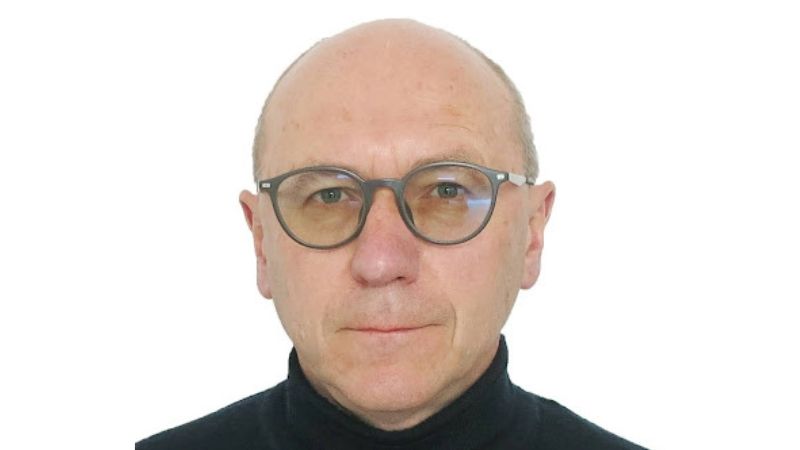
Klaudijus Maniokas deține un doctorat în științe sociale obținut la Universitatea din Vilnius, cu o teză dedicată extinderii Uniunii Europene și procesului de europenizare.
A acumulat peste zece ani de experiență în procesul de aderare a Lituaniei la Uniunea Europeană, încheindu-și cariera în funcția publică în calitate de negociator-șef adjunct și director general adjunct al Comitetului European din cadrul Guvernului Lituaniei.
Din anul 2004, în calitate de președinte al Consiliului de Administrație al companiei de consultanță ESTEP, a coordonat numeroase misiuni de consultanță și cercetare axate pe integrarea europeană și dezvoltare, în special în domeniile reformei sectorului public, managementului procesului de aderare la UE, precum și planificării și evaluării intervențiilor finanțate din fondurile structurale ale UE. În acest context, a colaborat cu serviciile Comisiei Europene, SIGMA, Banca Europeană de Investiții, Banca Mondială și alte organizații internaționale.
În ultimii douăzeci de ani, a oferit consultanță guvernelor din Europa de Est și din Balcanii de Vest în aceste domenii.
Cele mai recente poziții ocupate includ funcția de lider de echipă al proiectului „Sprijin pentru integrare europeană” din Albania (2021–2024) și cea de expert în screening în cadrul programului Ukraine2EU (2024–2025).
Manager comunicare
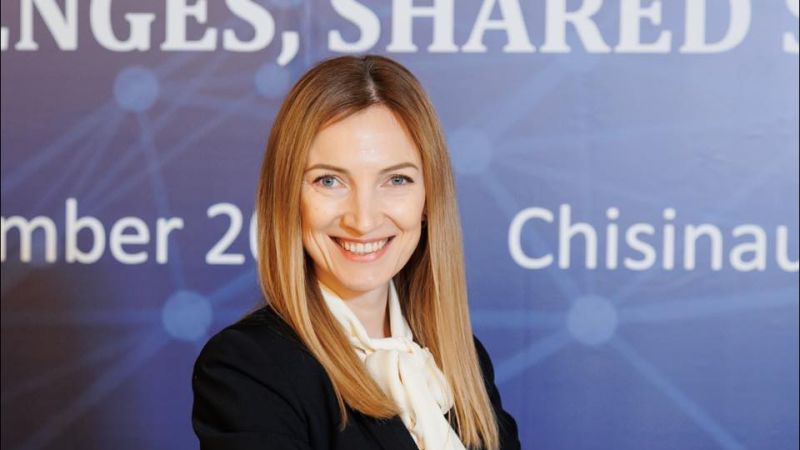
Deținând diploma de master în Relații Internaționale, Iana are 16 ani de experiență în comunicare strategică, fiind principala responsabilă de un șir de campanii de mediatizare, inclusiv la nivel național, organizarea evenimentelor la nivel înalt, dezvoltarea și mentenanța paginilor web ale instituțiilor publice și partenerilor de dezvoltare, elaborarea numeroaselor produse informaționale și de vizibilitate.
Ea și-a început cariera în calitate de jurnalist, iar din 2009 a lucrat pentru un șir de proiecte ale partenerilor internaționali de dezvoltare în Moldova, între care ONU, Banca Mondială, PNUD, UE, fiind responsabilă de comunicare în domenii precum reforma administrației publice, drepturile omului și egalitatea de gen, coordonarea asistenței externe, politici de tineret. De asemenea, a activat în calitate de consilier și purtător de cuvânt la Ministerul Tineretului și Sportului. În anul 2014, Iana s-a alăturat Misiunii Înalților Consilieri UE, în calitate de expert în comunicare, fiind responsabilă de comunicarea mai multor misiuni de atunci. În anul 2025, a devenit expert cheie în comunicare în cadrul proiectului „Moldova este Europa – Sprijin pentru integrarea în UE”.
Deține, de asemenea, o diplomă în filologie engleză și germană.
Expertă non-cheie/ Asistentă a Înaltului Consilier UE în domeniul serviciilor financiare
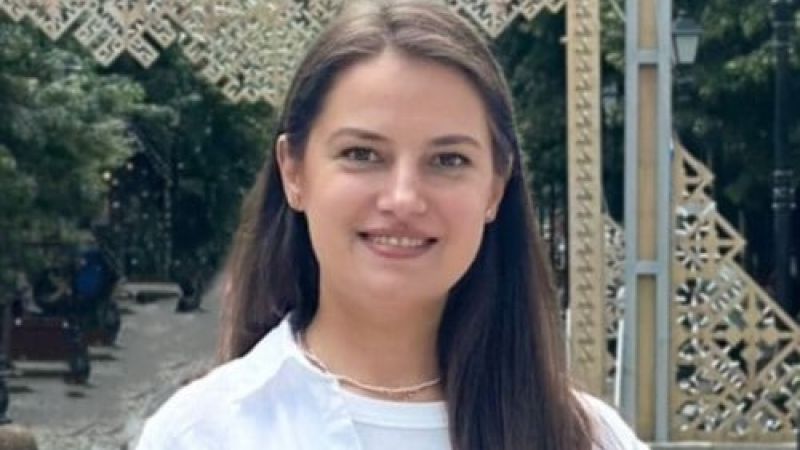
Ana Gîlca are o bogată experiența profesională (peste 12 ani), lucrând atât pentru instituții guvernamentale, cât și pentru organizații internaționale, fiind totodată absolventa a două studii universitare de masterat în Economie și Relații Internaționale.
Pe parcursul carierei sale, Ana a ocupat diverse roluri în cadrul ministerelor, unde a participat la armonizarea legislației naționale la acquis-ul UE, a contribuit la dezvoltarea acordurilor ministeriale, interguvernamentale și internaționale și a supravegheat implementarea acestora. Expertiza sa include managementul proiectelor, monitorizarea financiară și stabilirea relațiilor strategice cu părțile interesate.
Înainte de a se alătura echipei proiectului, Ana a lucrat pentru proiecte finanțate de UE, cel mai recent având ca obiectiv „Consolidarea supravegherii, guvernanței corporative și managementului riscurilor în sectorul financiar”, destinat să sprijine Banca Națională a Moldovei în implementarea reformelor menite să îmbunătățească supravegherea, guvernanța corporativă și managementul riscurilor în sectorul financiar.
Expertă non-cheie/Asistentă a Înaltului Consilier UE în domeniul dezvoltării sectorului agro-alimentar
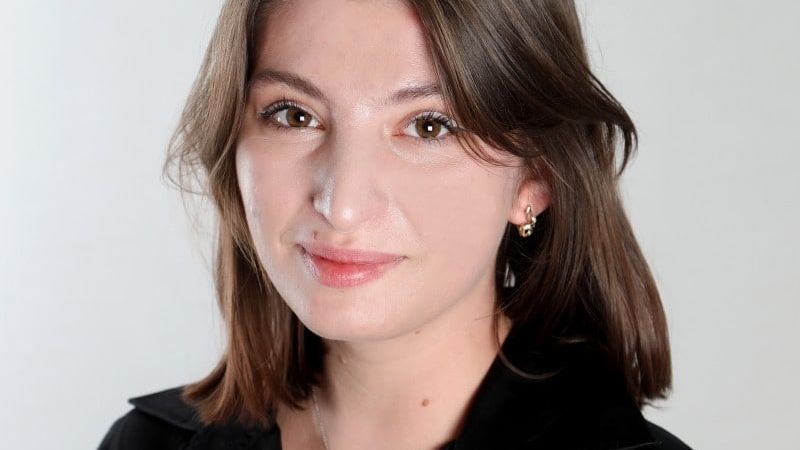
Cătălina are o experiență vastă și în expansiune în domeniul sustenabilității, politicilor agroalimentare și implementării de proiecte. A dobândit experiență lucrând la proiecte de sustenabilitate și mediu în București, dezvoltându-și ulterior expertiză practică în Moldova prin sprijinirea inițiativelor internaționale de dezvoltare în sectoarele agroalimentar și de mediu. A participat la organizarea de vizite la nivel înalt, coordonarea misiunilor de experți, pregătirea de rapoarte analitice și facilitarea de evenimente cu parteneri internaționali. Aceste responsabilități i-au consolidat înțelegerea cadrelor de sustenabilitate, a securității alimentare și a Obiectivelor de Dezvoltare Durabilă ale Națiunilor Unite – în special a celor axate pe protecția mediului și sistemele agroalimentare rezistente.
Abilitățile de leadership, comunicare și colaborare interculturală ale Cătălinei au fost îmbunătățite în continuare prin inițiative precum Programul Tinerilor Ambasadori Europeni și prin educația sa internațională diversă.
A absolvit licența în chimie în Olanda și a obținut un MBA la București, asigurându-i cu o bază solidă pentru a lucra eficient cu experți din diverse medii culturale și instituționale.
Expertă non-cheie/Asistentă a Înaltului Consilier UE în afaceri de securitate internă
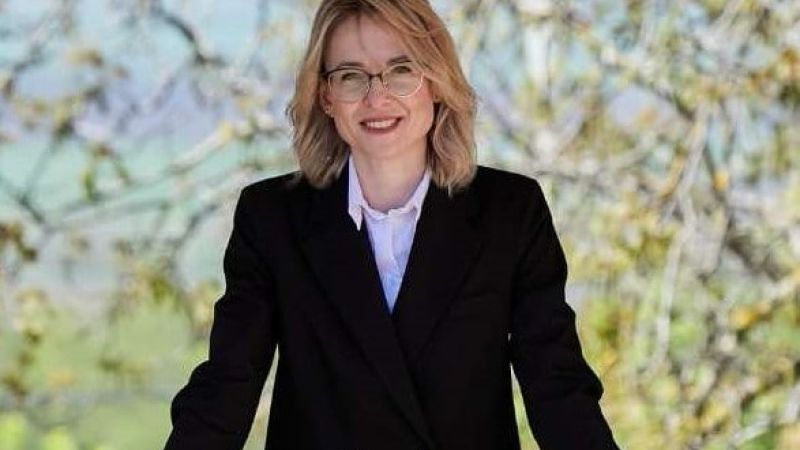
Cornelia are o vastă experiență în cadrul inițiativelor susținute de donatori internaționali, atât în administrația publică, cât și în societatea civilă. Datorită experienței anterioare în calitate de coordonatoare instruiri și coordonatoare locală, precum și a experienței în planificarea, organizarea și implementarea activităților de proiect, Cornelia și-a dezvoltat abilitățile de relaționare cu părțile interesate, de acordare a sprijinului managerilor de proiect, de asigurare a unor rezultate de calitate și executare corespunzătoare a bugetelor proiectelor, elaborare și redactare a documentelor de proiect.
Cornelia a revenit la proiectul „Moldova este Europa – Sprijin pentru integrarea în UE” , după ce anterior a fost asistentă a Înaltului Consilier UE în domeniul financiar-bancar și a Înaltului Consilier UE în domeniul educației.
Expertă non-cheie/Asistentă a Înaltului Consilier UE în domeniul anticorupției
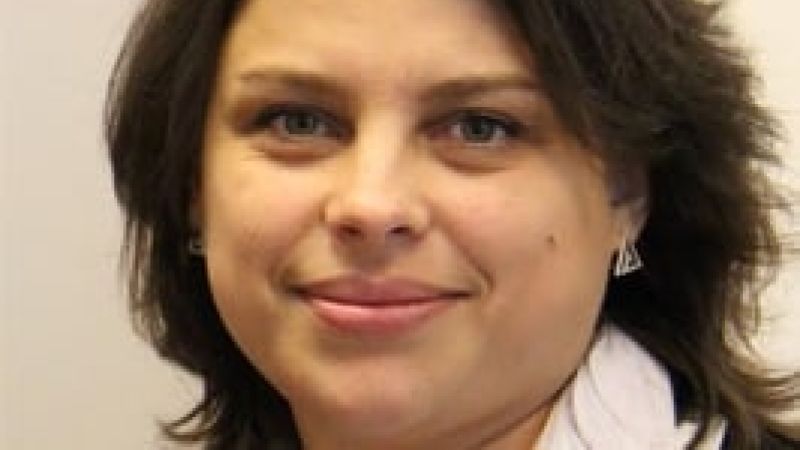
Deținând diplome de licență în limbile spaniolă și engleză, precum și în Dreptul Afacerilor, Cristina are peste 15 ani de experiență practică în traducere și interpretariat, fiind angajată ca traducător/interpretor atât pe bază ad-hoc (freelancer), cât și permanent, pentru diverse proiecte finanțate de UE și USAID. De asemenea, a acumulat experiență în calitate de facilitator local, oferind asistență și suport în timpul misiunilor Deloitte Consulting în Moldova. Cristina este o persoană atentă la detalii și de încredere, deschisă să acumuleze noi cunoștințe și dedicată respectării termenelor-limită.
Expertă non-cheie/ Asistentă a Înaltului Consilier UE în domeniul justiției și procuraturii
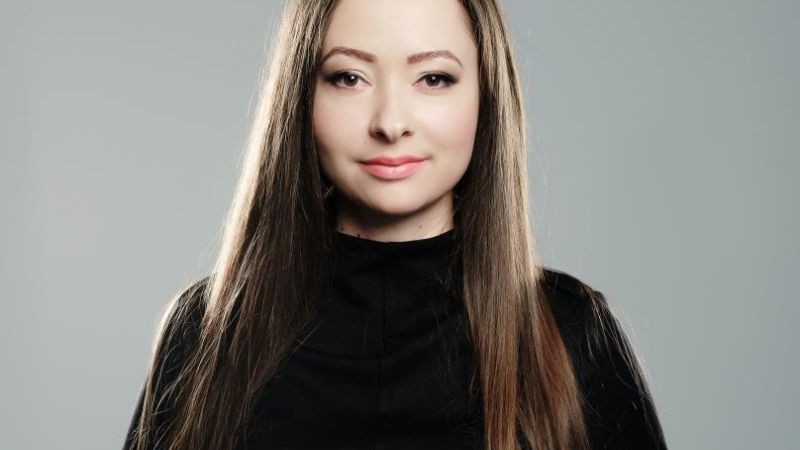
Marina este juristă cu o experiență de 5 ani. Domeniul său de expertiză include operațiuni comerciale și comerț, fuziuni și achiziții, guvernanță corporativă și restructurare, litigii.
Marina a consultat anterior pe proiecte legate de infrastructură, domeniul energetic și a contribuit la diferite publicații despre legislația moldovenească, afaceri, precum și reforma justiției. În prezent, subiectul ei de interes este aferent sectorului bancar și financiar. Marina este licențiată și magistru în drept.
Expertă non-cheie/Asistentă a Înaltului Consilier UE în domeniul coordonării reformelor
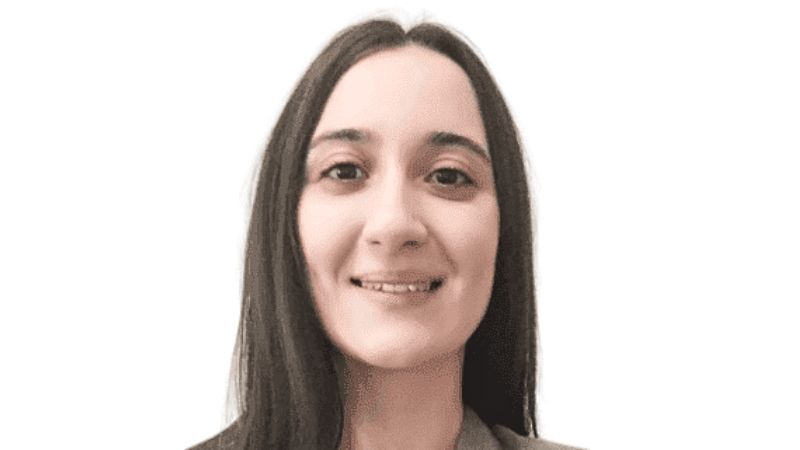
Ina Camerzan deține diplomă de licență și masterat în economie de la Academia de Studii Economice din Moldova și a absolvit un program intensiv în drept și economie europeană la Riga Graduate School of Law.
Ina a dobândit o experiență solidă lucrând cu organizații internaționale, având experiență în implementarea de programe și proiecte, precum și în consultanță finanțată de donatori.
Experiența sa profesională include activitatea la Oficiul Consiliului Europei la Chișinău, pe un proiect anticorupție în strânsă legătură cu procesele naționale de reformă și implementarea standardelor internaționale. De asemenea, are experiență în sprijinirea implementării programelor educaționale la American Councils for International Education, precum și în oferire de consultanță și suport pentru proiecte în sprijinul agriculturii finanțate de donatori internaționali.
Expertă non-cheie/Asistentă a Înaltului Consilier UE în domeniul educației, dezvoltarea capitalului uman și cultură
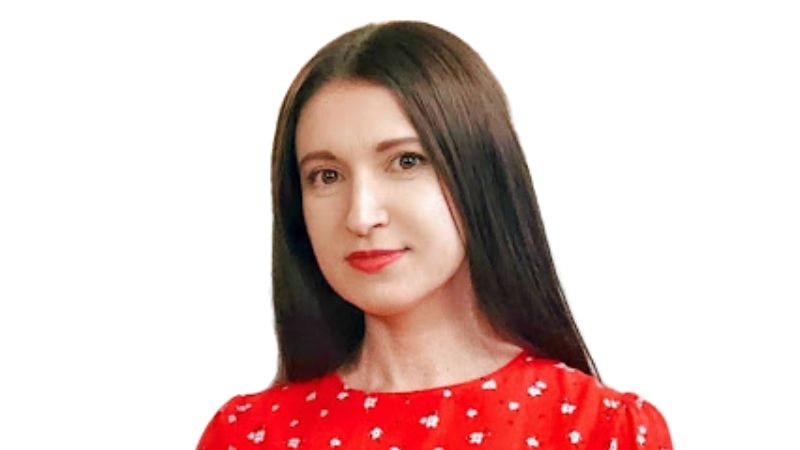
Cezara Cebanu este o profesionistă cu experiență, având peste zece ani de expertiză în integrare europeană, politici educaționale și cooperare internațională, cu un parcurs profesional în programe finanțate de UE și diplomație consulară.
Din 2019, a fost membră-cheie a Misiunii Înalților Consilieri a Uniunii Europene în Republica Moldova, îndeplinind rolurile de Expert Junior și Asistentă a Înaltului Consilier al UE în domeniul Educației și Cercetării. Din 2025, deține aceeași poziție în cadrul proiectului „Moldova este Europa – Sprijin pentru integrarea în UE”. În rolul său sprijină implementarea reformelor naționale în domeniile educației, cercetării, tineretului, sportului, învățământului dual și culturii. Experiența ei anterioară cuprinde serviciul consular al Republicii Moldova în Italia și participarea la proiectul Twinning al UE în domeniul protejării patrimoniului cultural.
Deține un Master în Integrare Europeană: Politici Europene și Planificarea Proiectelor Comunitare la Universitatea din Padova (Italia) și un al doilea Master în Psihologie Organizațională și a Muncii la Universitatea de Stat din Moldova.
Cezara este apreciată pentru gândirea ei diplomatică, abilitățile organizatorice, sensibilitatea interculturală și angajamentul față de serviciul public și valorile europene.
STAGII
CRITERII DE ELIGIBILITATE:
- Cetățenia Republicii Moldova;
- Înscrierea într-o instituție de învățământ superior din Republica Moldova sau din străinătate, ciclul I (Licență) sau ciclul II (Master), ori statutul de absolvent recent al unei instituții de învățământ superior;
- Vârsta – până la 30 de ani la momentul aplicării la Program;
- Cunoașterea fluentă a limbii române;
- Cunoașterea avansată a limbii engleze (cel puțin nivelul B2);
- Implicare activă în activități extracurriculare, poziție civică activă;
- Rezultate academice bune (pe baza mediei aplicațiilor primite);
- Motivație pentru o carieră în serviciul public în Republica Moldova.


DURATA ȘI PLASAREA
Durata stagiului este de două luni, indicativ: 30 iunie – 29 august 2025.
Stagiarii vor fi plasați în instituții publice de nivel central, cu titlu indicativ, în cele în care activează un Înalt Consilier UE. Stagiarii pot fi, de asemenea, alocați instituțiilor fără un Înalt Consilier UE desemnat, dar fiind sub mentoratul unui Înalt Consilier UE, în cazul în care există un interes confirmat din partea instituției și relevanță pentru sectoarele de intervenție ale Înaltului Consilier UE și/sau pentru subiectele clusterelor de negociere UE – RM.
Stagiarii vor fi îndrumați în activitățile lor zilnice de către Înalți Consilieri UE și/sau Experți Seniori non-cheie, și de personalul instituției gazdă. La finalul Programului de stagii, personalul instituției gazdă va prezenta un raport de evaluare în care va aprecia performanțele stagiarilor.
Stagiul este conceput ca o activitate cu normă întreagă, cu o implicare de 8 ore/zi, cu prezență fizică. Participarea cu normă parțială la Program nu se acceptă.
TEMATICA PROGRAMULUI DE STAGII
Programul de stagii se axează pe tematici ce țin de relațiile UE – Republica Moldova, în special pe procesul de integrare europeană.
Având în vedere etapa actuală a relațiilor UE – Republica Moldova, ediția din 2025 a Programului va aborda subiecte legate de negocierile de aderare.


BURSĂ
Bursele de stagiu vor fi oferite unui număr maxim de 70 de stagiari. De asemenea, în cazul în care există un număr mai mare de potențiali stagiari și un interes și o disponibilitate confirmată din partea instituțiilor gazdă, se pot acorda stagii fără plată.
Bursa lunară constituie 200 de euro brut și se plătește în lei la cursul de schimb INFOREURO din luna de plată (https://ec.europa.eu/info/funding-tenders/procedures-guidelines-tenders/information-contractors-and-beneficiaries/exchange-rate-inforeuro_ro). Impozitele vor fi deduse din această sumă conform legislației în vigoare.
Bursa va fi achitată cu condiția implicării cu normă întreagă în Programul de stagii, dovedită printr-o fișă de pontaj completată cu o scurtă descriere a activităților, semnată de către stagiar și Înaltul Consilier UE (mentor) corespunzător. Bursa pentru cea de-a doua lună se va plăti pe baza unei fișe de pontaj însoțită de un Raport final.
DEPUNEREA DOSARELOR
Înscrierea la Programul de stagii se va face prin depunerea electronică a CV-ului și a scrisorii de motivație la adresa de email: stagii@eu4moldova.eu.
Candidații trebuie să confirme că oferă acces organizatorilor la datele lor personale, care vor fi utilizate exclusiv în scopul Programului. Dosarele transmise după termenul-limită de 20 mai 2025 și/sau cele incomplete nu vor fi luate în considerare.


SELECȚIE
Selecția va avea loc în mai multe etape.
Prima etapă va include un proces de preselecție prin care se verifică dacă dosarele depuse sunt complete și corespund cerințelor stabilite în „CRITERII DE ELIGIBILITATE”. Preselecția se va desfășura imediat după termenul limită de depunere a dosarelor, în perioada (cu caracter orientativ) 20-27 mai. Candidații vor fi considerați preselectați dacă îndeplinesc toate criteriile de eligibilitate. Dosarele incomplete vor fi respinse automat.
A doua etapă a procesului de selecție va include un interviu cu membrii Comisiei de selecție, format din reprezentanți ai Delegației Uniunii Europene, Guvernului și proiectului finanțat de UE „Moldova este Europa – Sprijin pentru integrarea în UE”. Interviurile vor fi susținute în limba română și engleză și vor fi axate pe subiecte referitoare la integrarea în UE. Calendarul orientativ pentru etapa de interviuri este 28 mai – 4 iunie. Interviurile vor fi organizate, în temei, cu prezență fizică, dar pot avea loc și online. Membrii Comisiei de selecție vor completa un Chestionar de evaluare, marcând în grilă aprecierea lor asupra unor aspecte, precum fluența în limba engleză, abilitățile de prezentare, motivația, cunoștințe despre relațiile UE – RM, cunoștințe despre aspecte politice, economice și sociale etc.
Pe baza rezultatelor interviurilor, se va întocmi un clasament al candidaților, începând cu punctajul cel mai mare. Până la 70 de candidați, cei mai bine clasați, pot fi acceptați în program. Alternativ, membrii Comisiei de selecție pot conveni asupra unui punctaj minim considerat de trecere, iar numărul de stagiari selectați va fi determinat de cei care ating punctajul minim.
REPARTIZAREA ÎN INSTITUȚIILE GAZDĂ
Comisia de Selecție va repartiza participanții selectați în instituțiile gazdă în funcție de pregătirea academică (și profesională), în limita disponibilității locurilor de stagiu și a mentorilor. Comisia nu poate garanta repartizarea stagiarilor într-o instituție/sector anume, dar va încerca să realizeze cele mai potrivite repartizări, ținând cont de profilul stagiarului și de necesitățile instituției gazdă.
După repartizarea într-o instituție, stagiarul poate fi implicat în activitățile altei instituții, coordonate de un Înalt Consilier UE, dacă există interes din partea stagiarului și disponibilitate a mentorilor, cu condiția transmiterii unei notificări scrise către echipa proiectului.


ACTIVITĂȚI & CERTIFICARE
Stagiarii vor desfășura activități la solicitarea mentorilor, în conformitate cu responsabilitățile instituției gazdă. Stagiarii nu se vor implica în activități care nu au legătură cu aria de responsabilitate a instituției gazdă.
Stagiarii vor participa la activități comune organizate cu alți stagiari din Program, de către instituțiile beneficiare și/sau proiect – mese rotunde, conferințe, dezbateri etc. Participarea la aceste activități este obligatorie și considerată parte a Programului de stagii.
La finalizarea cu succes a celor două luni de stagiu și depunerea unui Raport final, stagiarii vor primi un Certificat care atestă participarea la Program.
CONTRACTE, PLĂȚI & RAPORTARE
Stagiarii vor semna un contract de stagiu în cadrul proiectului ”Moldova este Europa – Sprijin pentru integrarea în UE”. Pentru semnarea contractului, stagiarii vor furniza copia actului de identitate și dovada înscrierii academice/diploma de absolvire.
Pentru a primi bursa lunară, stagiarii trebuie să dețină un cont bancar valabil în Republica Moldova, în monedă națională. Detaliile bancare vor fi prezentate odată cu semnarea contractului, la începutul Programului de stagii.
Stagiarii vor completa lunar fișe de pontaj, cu o scurtă descriere a activităților zilnice, care vor fi semnate de către ei și de către mentori, și aduse în original la biroul proiectului în ultima zi a fiecărei luni de stagiu.
La sfârșitul perioadei de stagiu, stagiarii vor completa un Raport Final care va descrie experiența generală și va include un feedback despre aspectele pozitive și negative ale stagiului, precum și sugestii pentru îmbunătățirea domeniului în care și-au desfășurat activitatea.


CALENDAR
Ediția 2025 a Programului de stagii se va desfășura conform următorului calendar:
- 15 aprilie – 20 mai – depunerea dosarelor
- 20 mai – 27 mai – preselecția candidaților
- 28 mai – 4 iunie – interviuri cu candidații preselectați
- 4 iunie – 6 iunie – întocmirea clasamentului și luarea deciziilor de acceptare a candidaților în cadrul Programului și de repartizare a acestora către instituții
- 9 iunie – 13 iunie – notificarea candidaților selectați
- 16 iunie – 27 iunie – semnarea contractelor
- 30 iunie – începutul Programului de stagii
- 29 august – finalul Programului de stagii, înmânarea certificatelor, ceremonie festivă
Datele pot fi ușor ajustate în funcție de circumstanțele care ar putea apărea.
VIZIBILITATE


BENEFICII
În urma evaluării pozitive din partea mentorului instituției beneficiare, absolvenții Programului vor beneficia de următoarele facilități la intrarea în serviciul public: exceptare de la concurs în cazul aplicării pentru un post vacant în aceeași instituție în care s-a efectuat stagiul și exceptare de la perioada de probă în cazul aplicării pentru un post într-o subdiviziune a instituției în care și-au desfășurat stagiul – cu condiția efectuării a cel puțin încă o lună de stagiu (adică un total de trei luni de stagiu).
Mecanismul detaliat este descris în Legea nr. 123 din 2023 privind stagiul plătit în instituțiile statului. Beneficiile se acordă doar în condițiile îndeplinirii întocmai a cerințelor prevăzute în legislația națională.
Organizatorii pot decide realocarea stagiarului în Programul de Stagii administrat de Guvern sau menținerea acestuia în cadrul Programului derulat prin proiect (în cazurile în care instituția gazdă nu face parte din programul guvernamental de stagii plătite în instituțiile statului).
ȘTIRI

UE sprijină consolidarea capacităților de prognoză economică
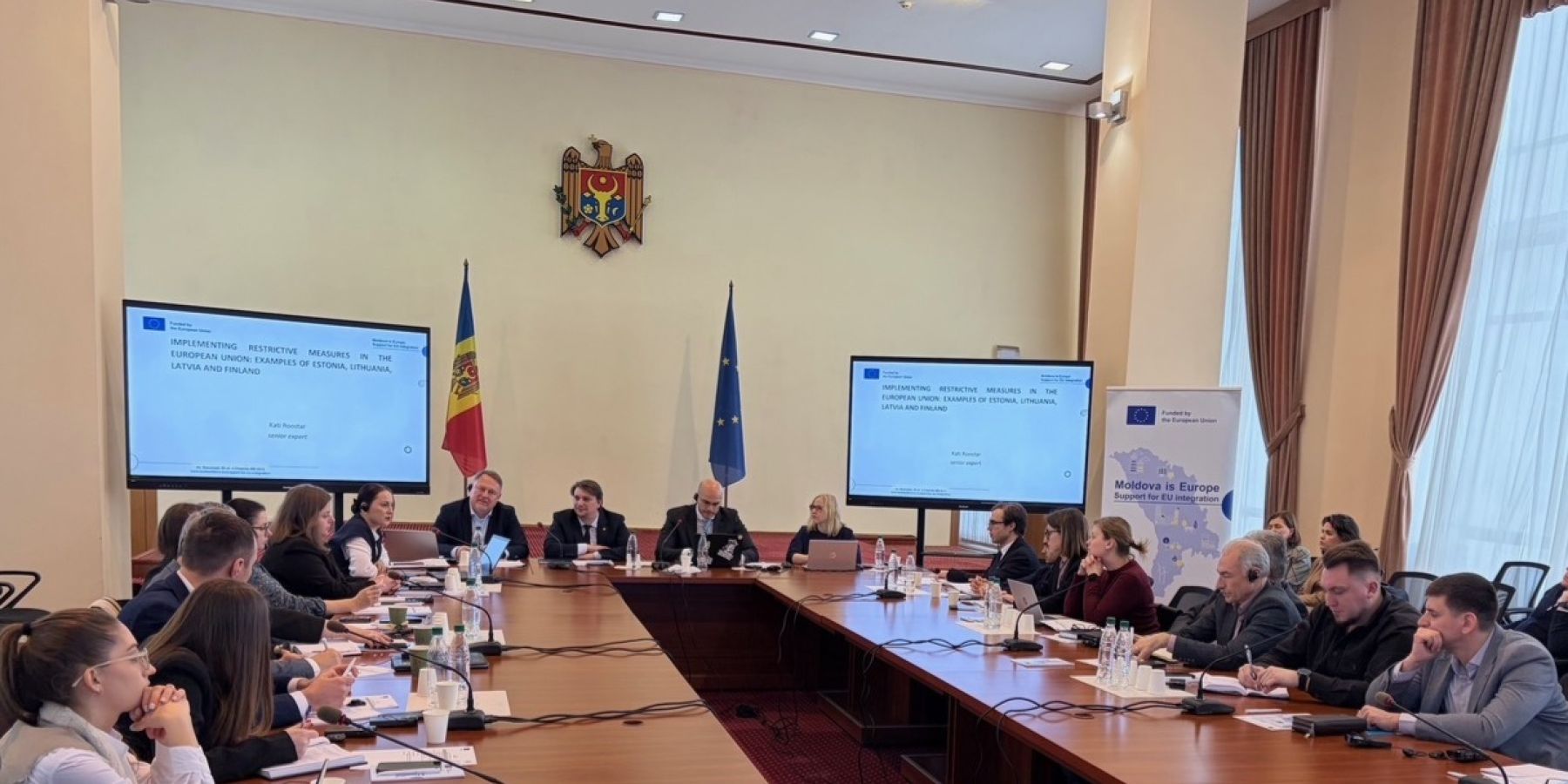
Guvernul Moldovei explorează cele mai bune practici ale UE pentru implementarea sancțiunilor internaționale
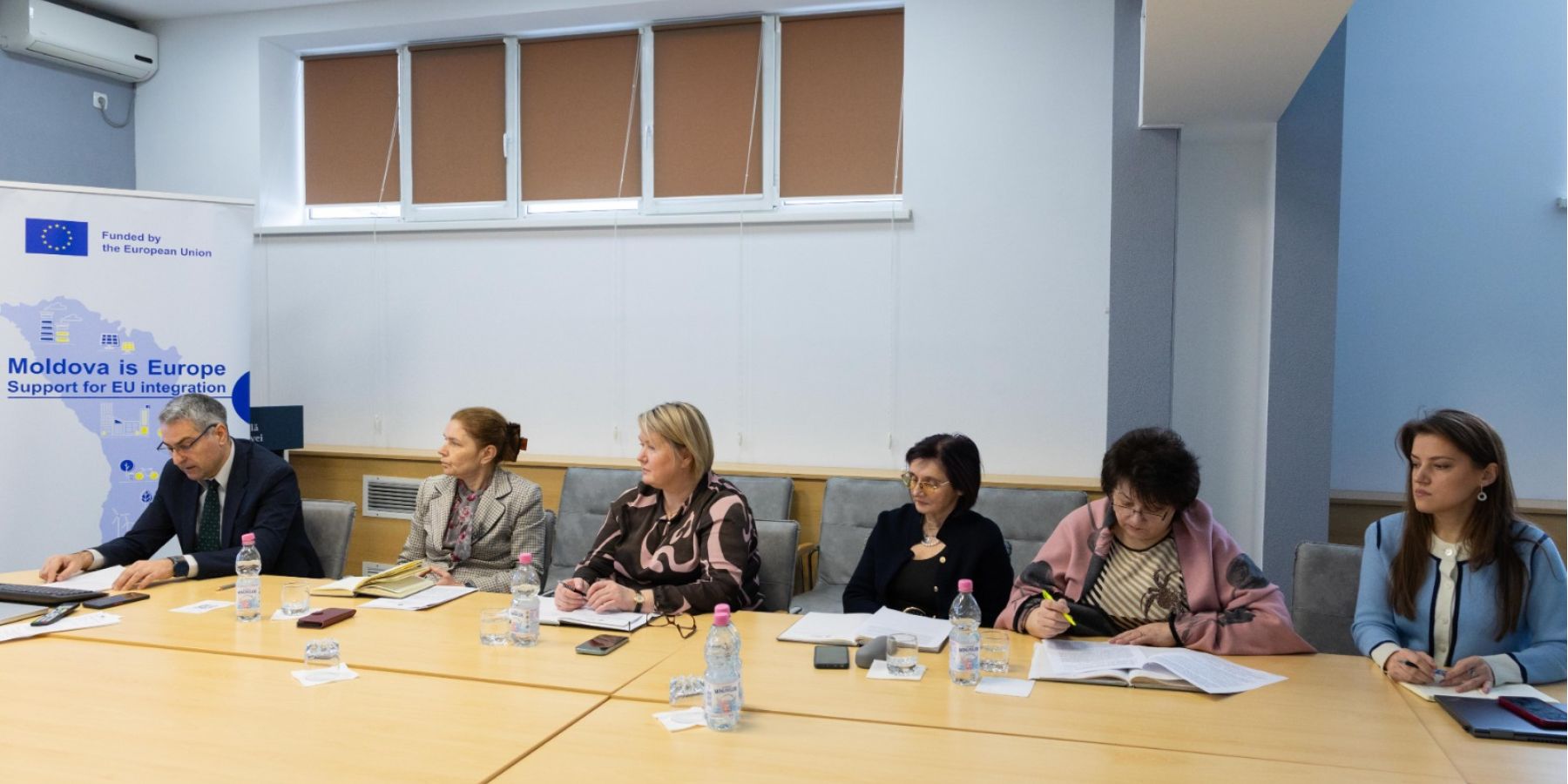
Peste 100 de profesioniști din domeniul bancar își consolidează expertiza privind noile reglementări în materie de risc operațional
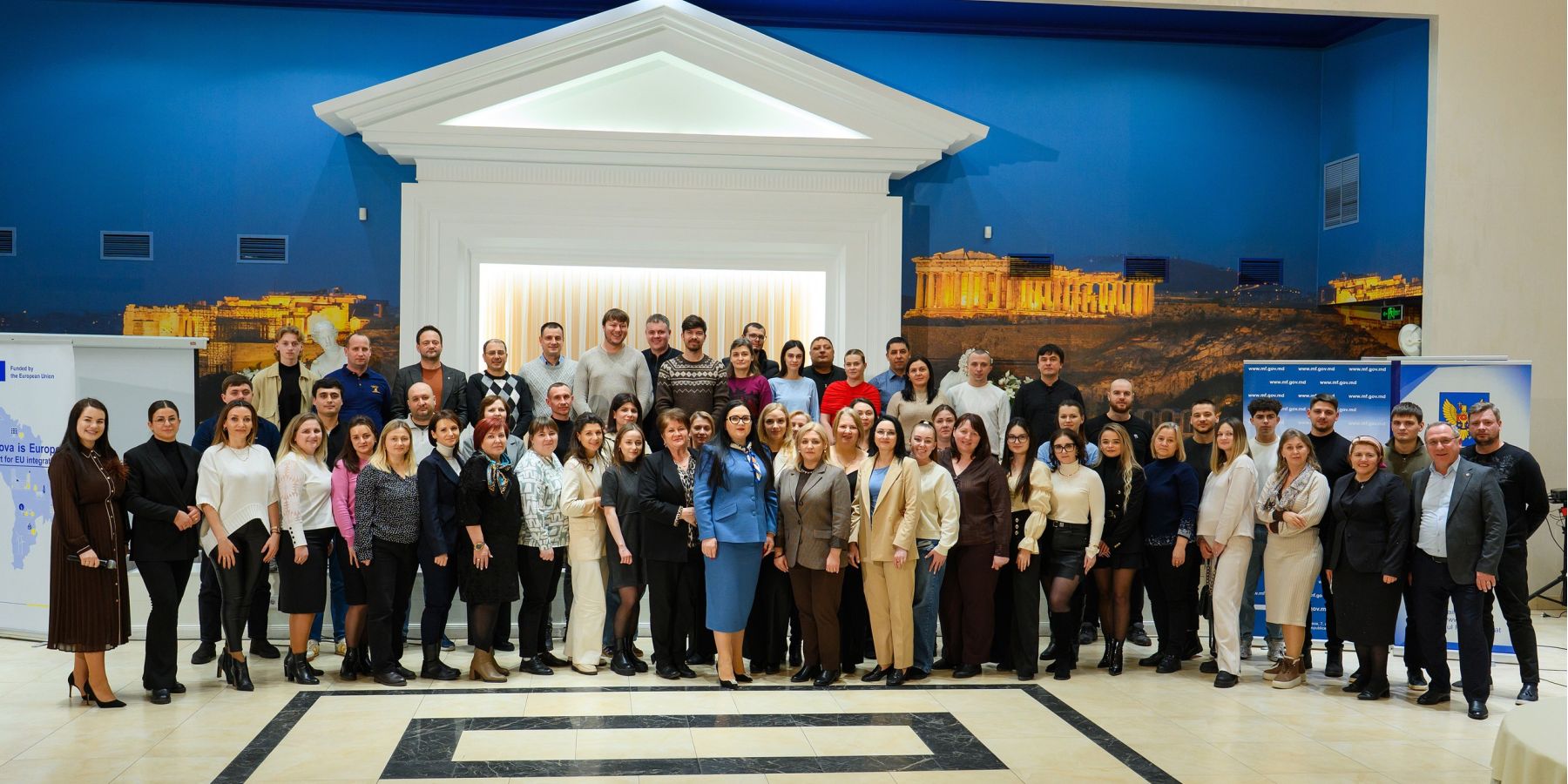
Circa 100 de antreprenori din regiunile centrale ale Moldovei au fost instruiți cum să lanseze și să gestioneze o afacere, cu sprijinul UE
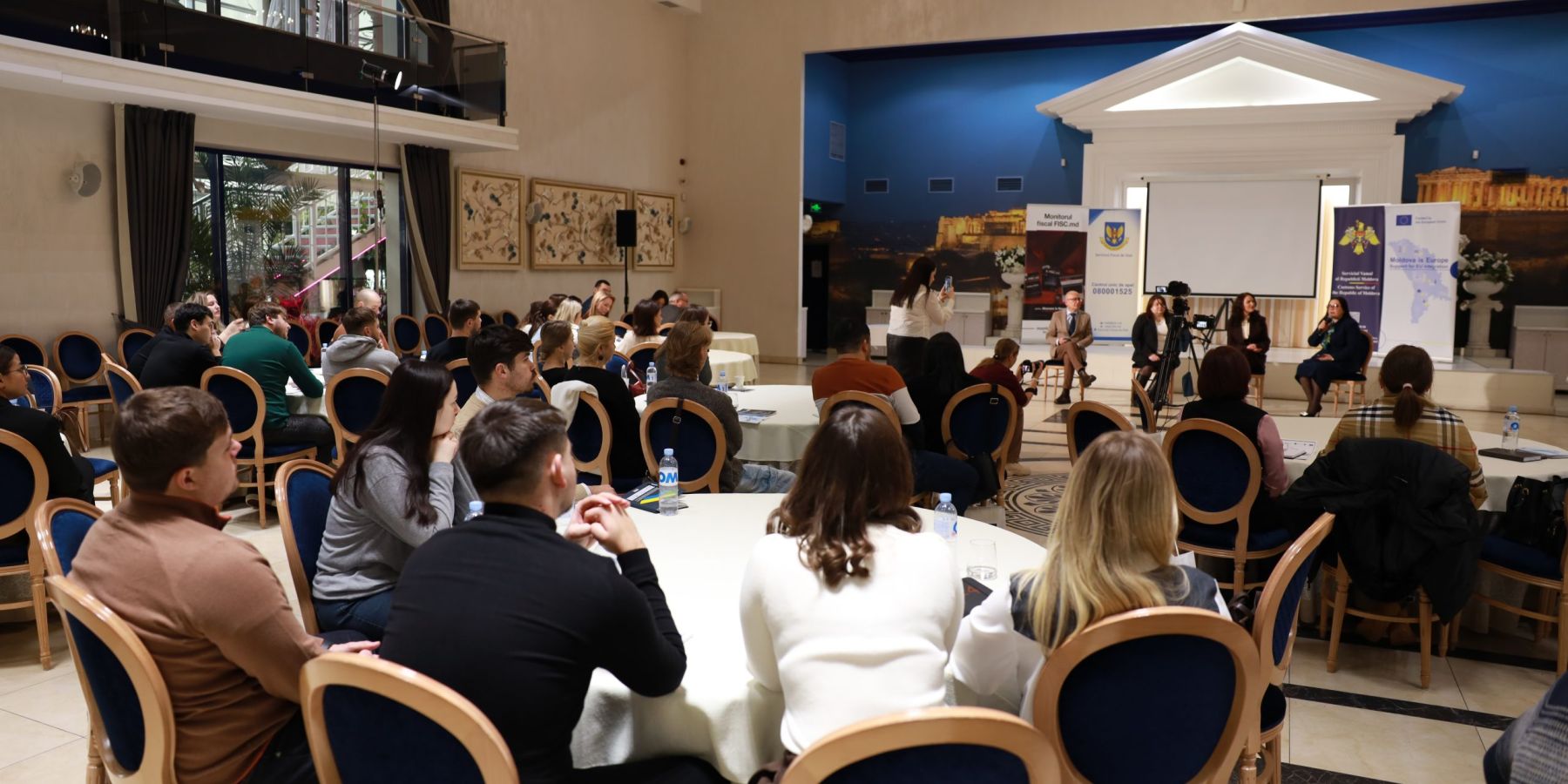
Antreprenorii din regiunile centrale ale țării încep un curs de instruire de trei zile, organizat cu sprijinul UE
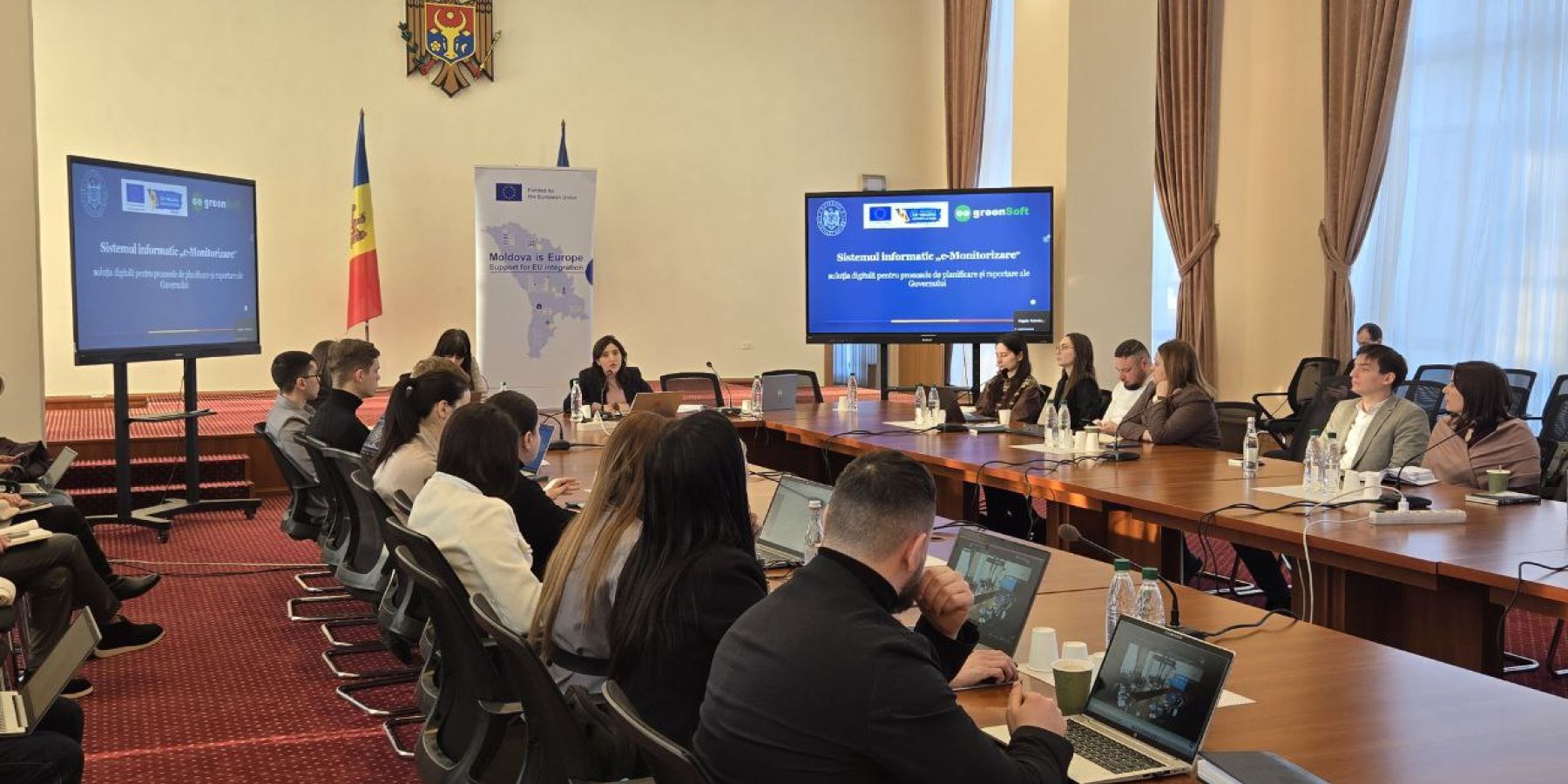
Peste 400 de funcționari publici instruiți în utilizarea Sistemului Informațional „e-Monitorizare”

Servicii sociale – mai accesibile și mai incluzive, în conformitate cu standardele UE
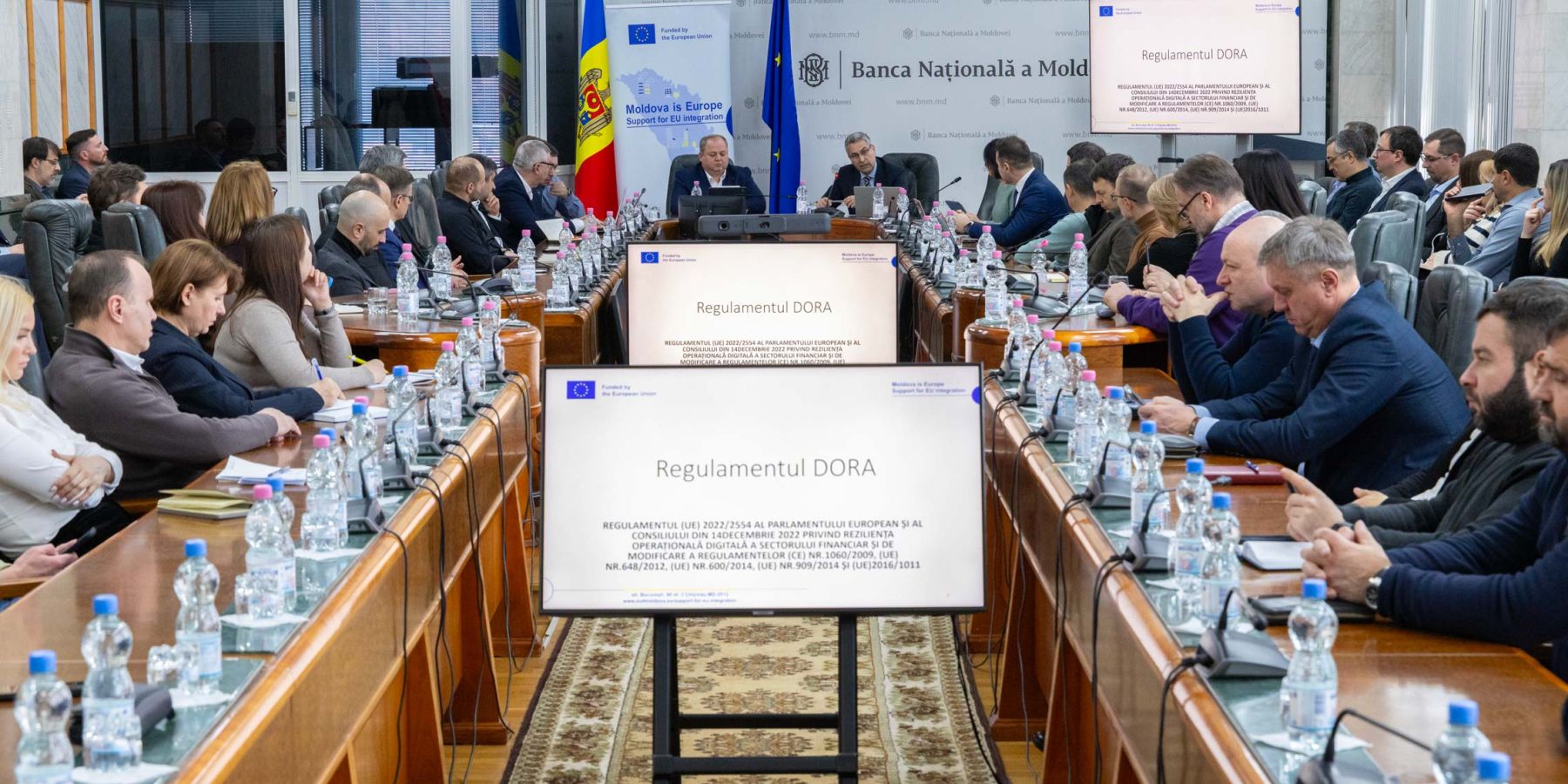
Reziliență digitală pentru un sistem financiar modern – sesiune de instruire pentru reprezentanții băncilor, organizata cu sprijinul UE
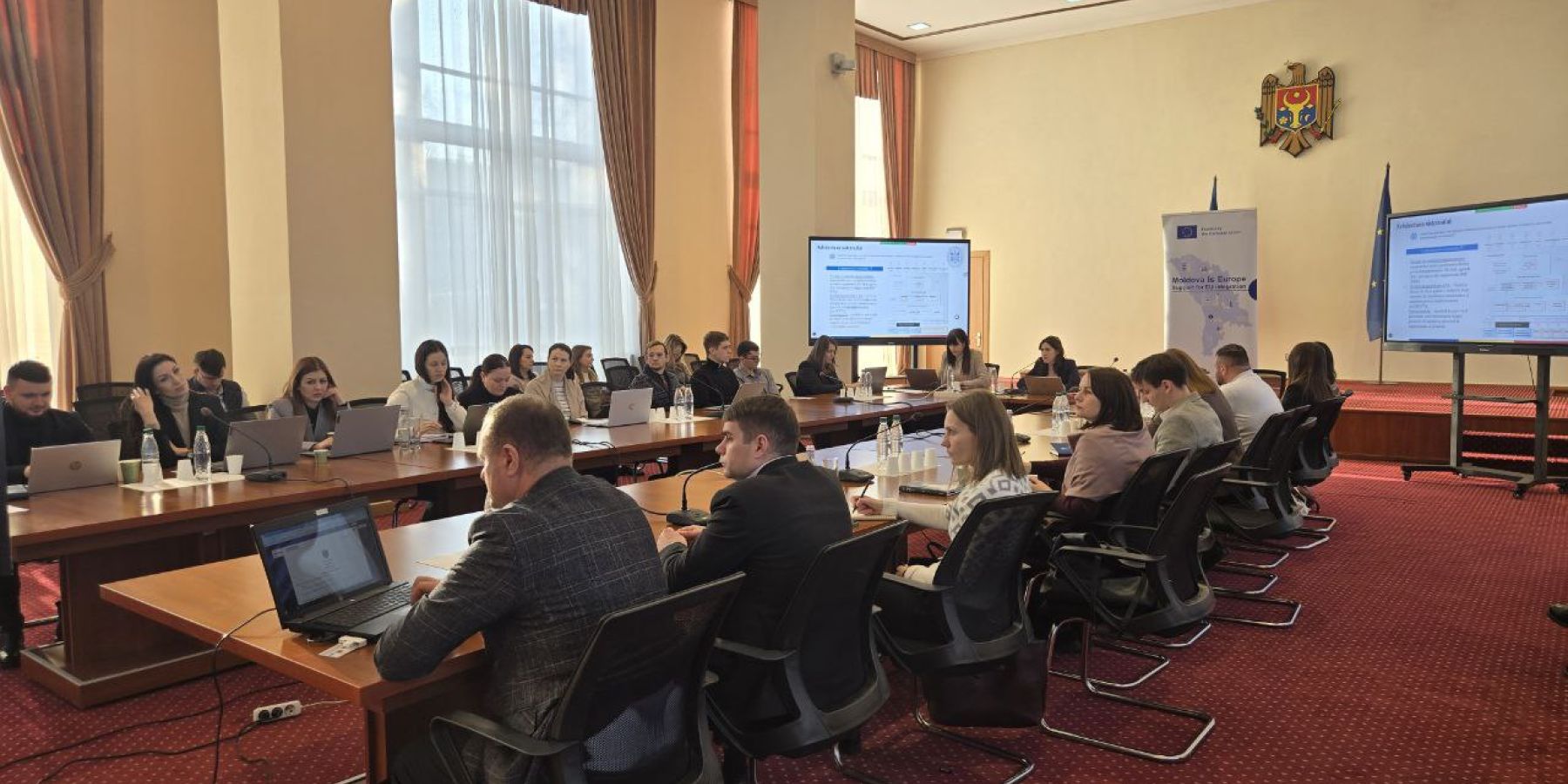
Noul sistem informațional „e-Monitorizare” de susținere a procesului de armonizare legislativă, urmează să fie lansat cu sprijinul UE: funcționarii publici sunt instruiți în utilizarea acestuia
